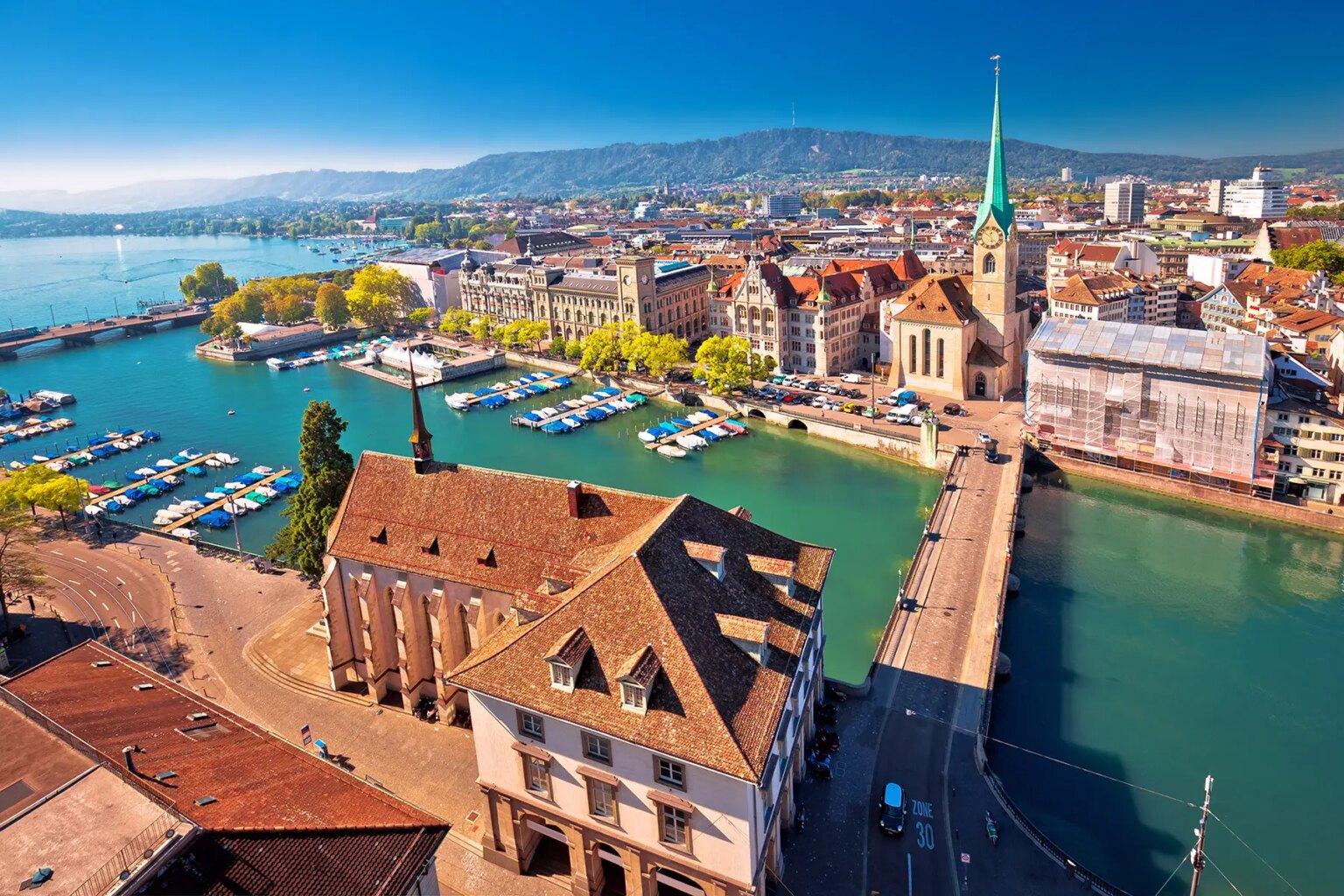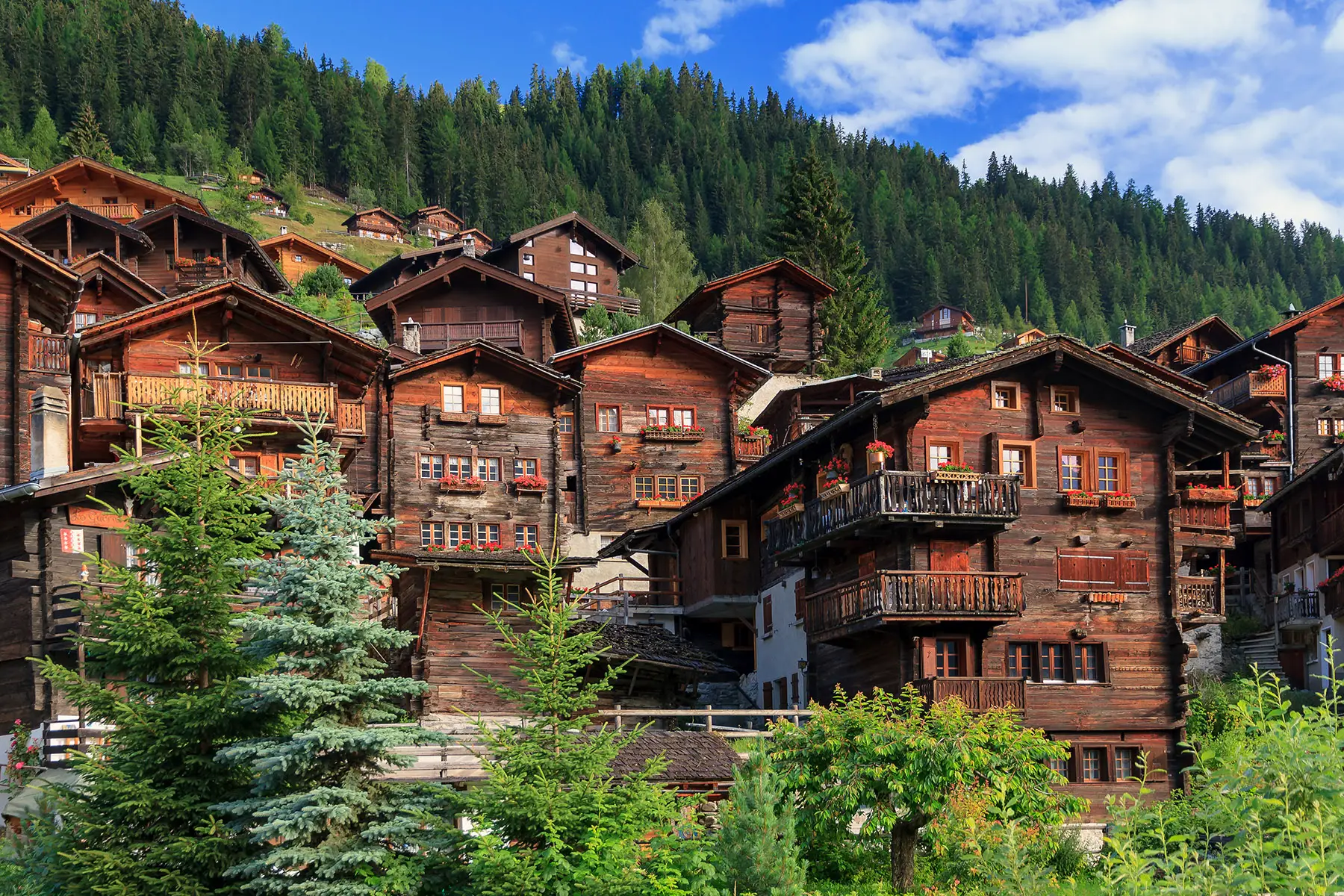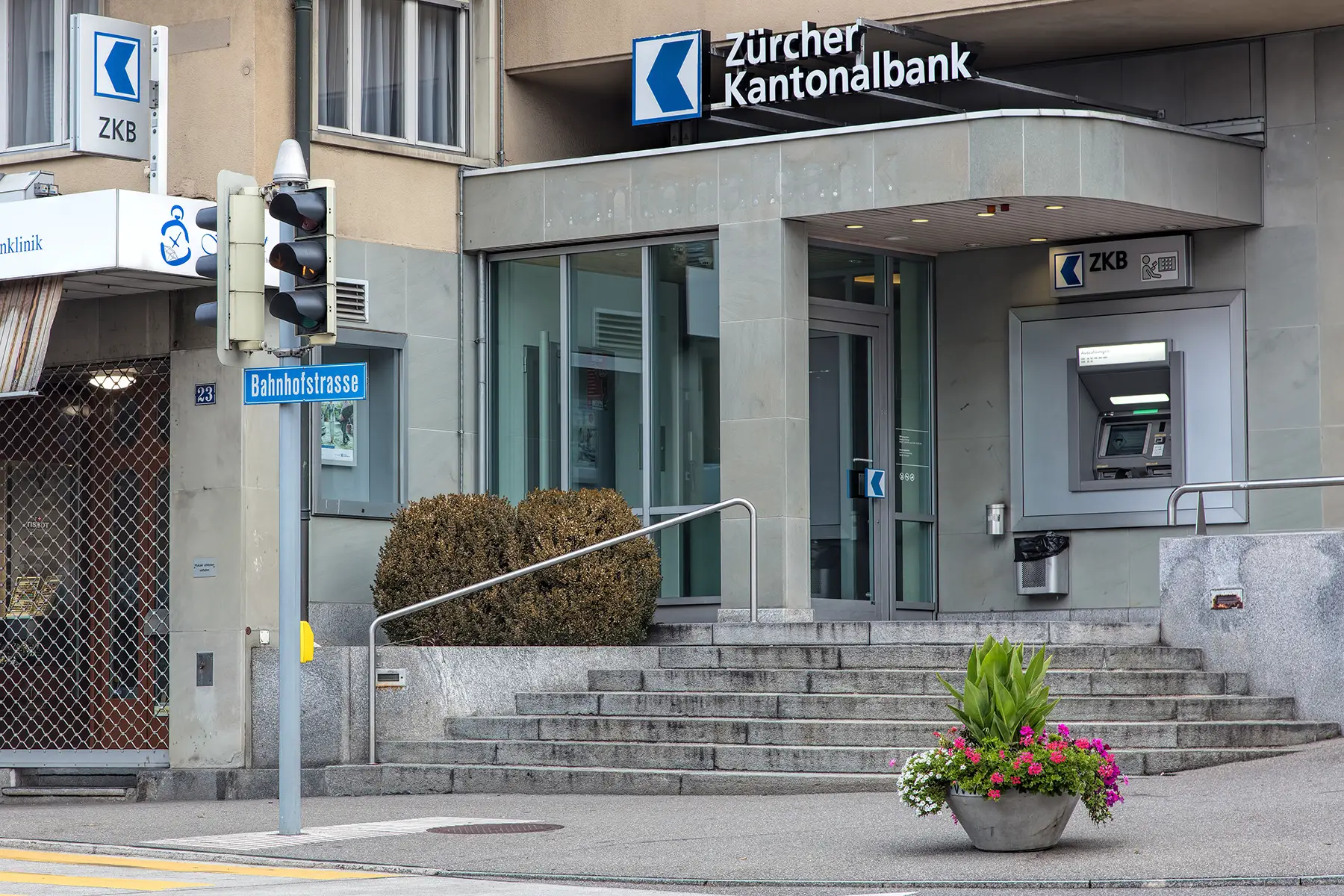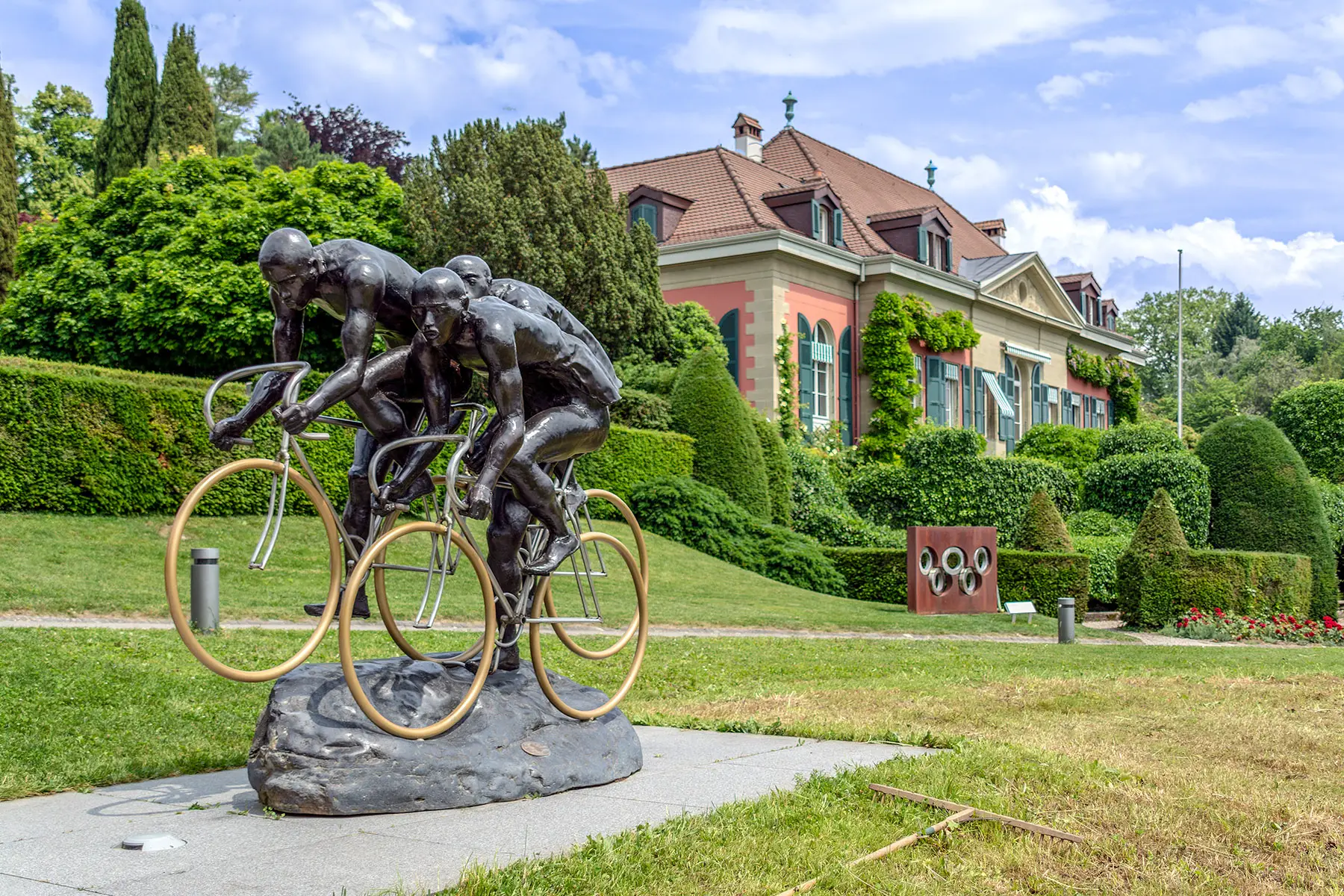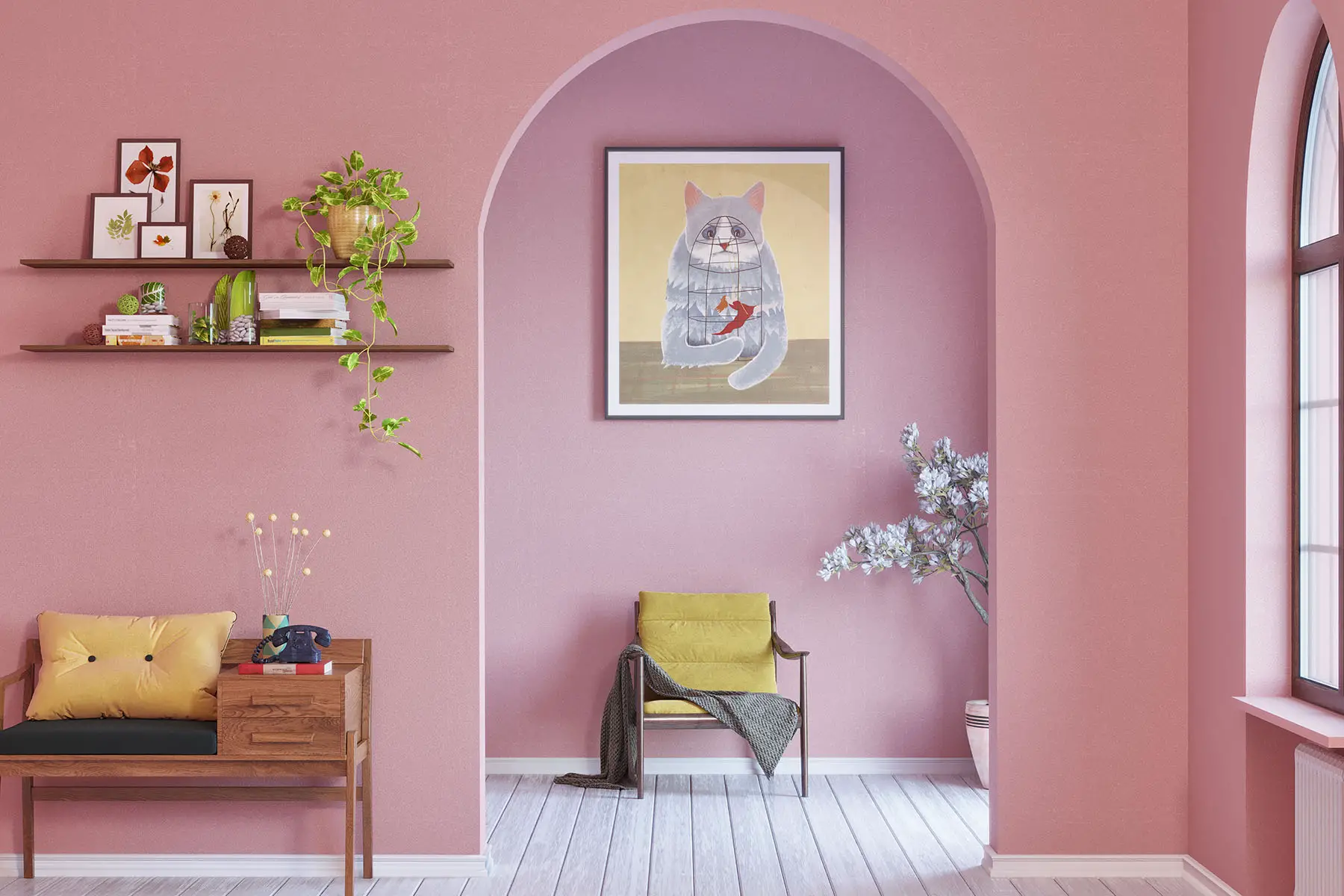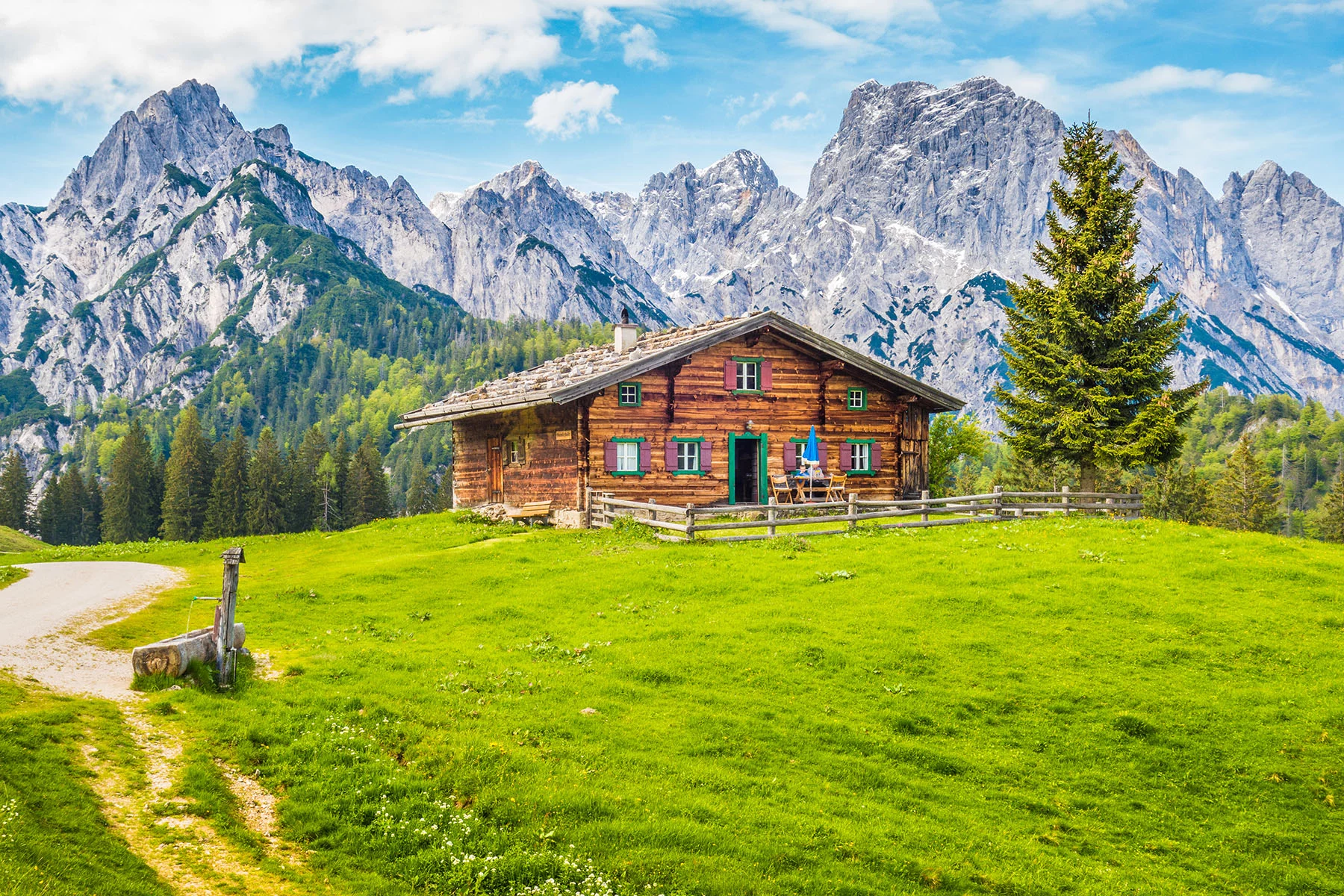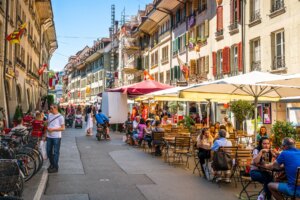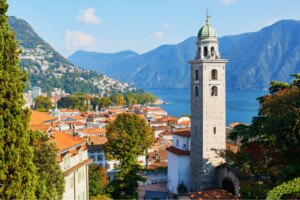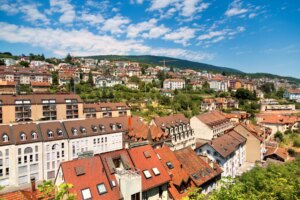If you are planning on living in Zurich, you will have the tricky task of deciding exactly where to live. After all, each of the city’s districts has its own distinct character, charm, and facilities, and where you decide to settle will largely come down to personal preference.
To help you get an idea of your options, this guide outlines everything you need to know about living in Zurich, including the following:
Spotahome
Looking for somewhere to rent in Switzerland? Spotahome takes the hassle out of househunting by doing the hard work for you. Their online platform lets you find, view, and book rental properties all from the comfort of your own home. Take the stress out of househunting in Switzerland with Spotahome.
An overview of Zurich
Located at the northeastern tip of Switzerland, Zurich is ideal for exploring the nearby Alps. However, there is much to discover in the vibrant city itself. From old-world charm to trendy industrialism, Switzerland’s financial capital is so much more than a banker’s paradise. After all, there’s a reason it ranks as one of the most liveable cities in the world. Not only does it serve as a great base to explore some of the best places to visit in Switzerland, but it also boasts some of the best schools in the country.
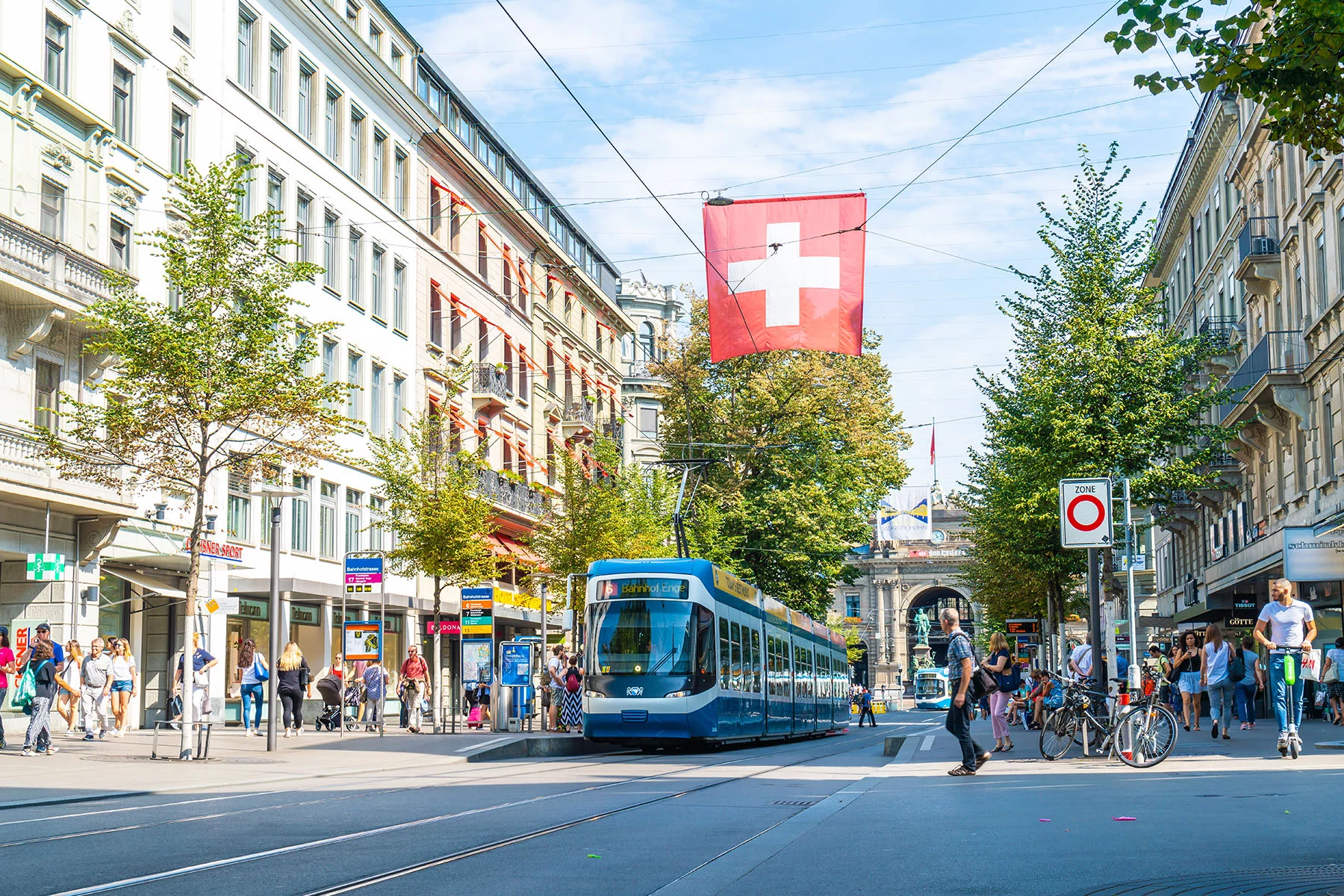
From a social point of view, it’s also ideal for sampling the best of Swiss cuisine and the local drinking culture. All this, combined with the city’s insanely low crime rate and gleaming streets, make it a very appealing place to settle for expats. Best of all, Zurich boasts a frankly preposterous number of drinking fountains – and hydration is very important!
Zurich’s demographics
Zurich’s reputation as an economic hub and intuitive living space is reflected in the makeup of its people. For instance, in 2018, 32% of the city’s population was made up of non-Swiss citizens from a total of 172 different countries. This all contributes to Zurich’s multi-cultural social flavor. Therefore, despite Swiss German (Schweizerdeutsch) being the local language, you will likely get by just fine speaking English, which is good news for expats. That said, you could astound the locals and experience otherwise guarded social intricacies by learning some German.
Zurich culture and society
One of the best things about living in Zurich is the warm and welcoming culture. Despite being the largest city in Switzerland, its population (within the ZMA anyway) of only 400,000 means that there is still a sense of familiarity and intimacy that you wouldn’t normally associate with a financial metropolis.
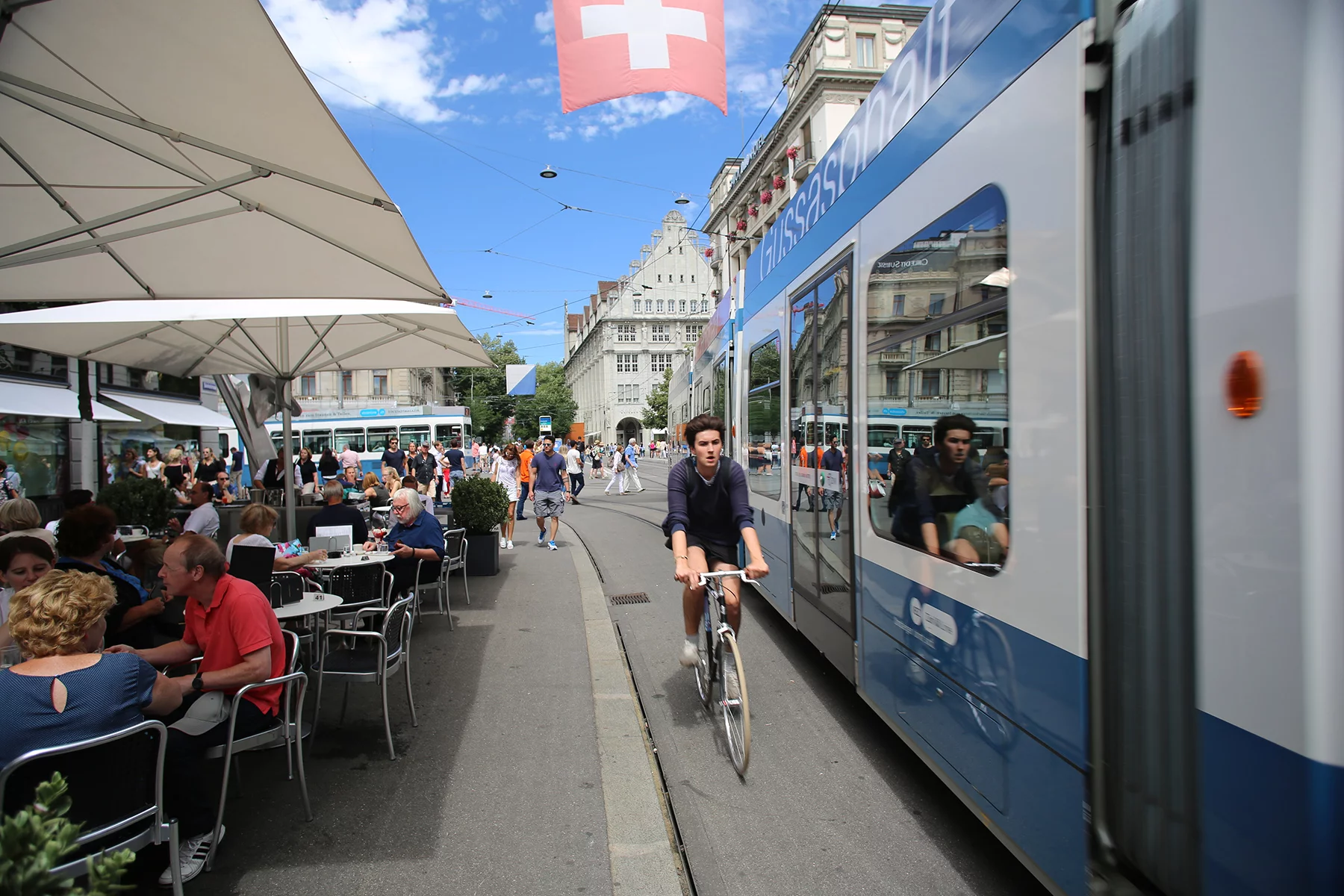
In terms of social etiquette, therefore, there is a real sense of community throughout the city. For instance, you can expect friendly waves and hellos from neighbors and locals. Bear in mind, however, that the Swiss are fairly private when it comes to personal and financial affairs, so try not to pry. Basically, some humility, humbleness, and friendliness will get you far.
That said, it’s also wise to remember the cultural nuances of the city, as it is rather unique within the European zeitgeist. For instance, the drinking culture is somewhat more restrained, and you can expect social events to end at a reasonable time. On the flip side, though, this might actually be considered a good thing when you get to leave a party with a healthy buzz as opposed to crawling for a taxi!
Cost of living in Zurich
Zurich’s reputation as being expensive is frankly, founded. This not only applies to property but also the general cost of living. Thankfully, however, the net pay is among the highest in the world and the job market is healthy for expats. When it comes to choosing where to live in Zurich, a broad spectrum of needs and budgets can also be accommodated.
Like in most financial hubs, the closer you live to the center, the more expensive things can get across the board. This applies especially to property, which can be slightly tricky to navigate for expats. However, our guide to housing in Switzerland will help you with that.
How to find housing in Zurich
When searching for a home in Zurich, there are many things to consider. Zurich is a family-friendly city with a variety of options for expats. While there is no particular area of the city specifically for families, many internationals settle near the two main schools on either side of the lake: Kusnacht and Zumikon on the right side (known as the Gold Coast), and Kilchberg and Thawil on the left (the Silver Coast).
Your best friend for getting off the ground in finding somewhere to live in Zurich is going to be the internet, whether you’d like to rent or buy property. You will want to begin this process as early as possible before you move as it can take a while to get everything sorted. Here are some handy websites you can use to find somewhere to live in Zurich:
Typical accommodations in Zurich
It can be difficult to find homes with gardens in Zurich. Ground floor apartments in Zurich will often have small patios and some apartments have shared garden or barbecue areas. Houses with gardens are available outside of the city and generally cost more than apartments in Zurich.
The average size of apartments in Zurich is between 90–100 sqm. However, large homes with five or six bedrooms are very scarce. Space always costs more, no matter where you live and Switzerland is certainly no exception.
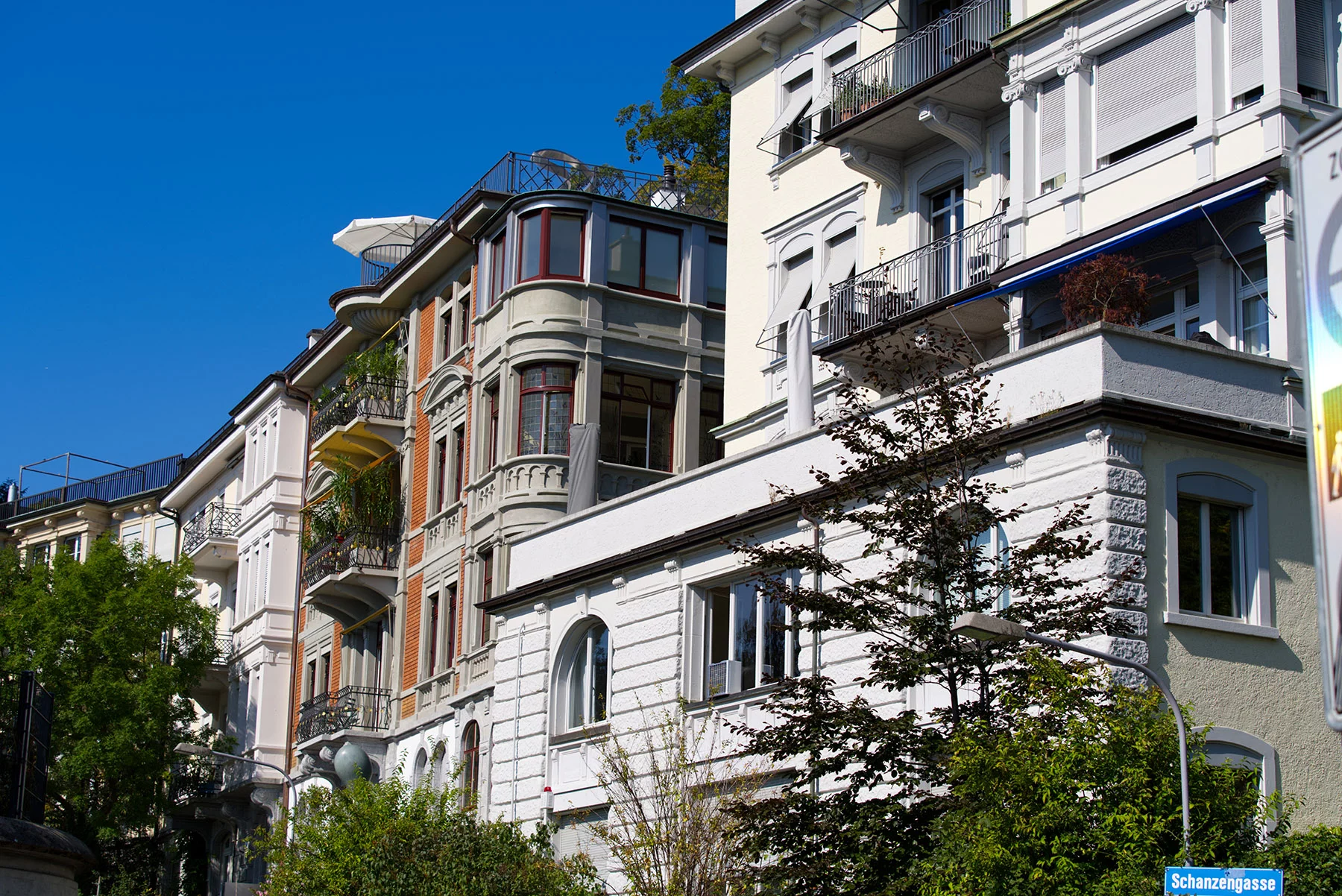
Typical houses in Zurich city boast a 1920s design with very modern interiors. Such buildings are mostly in Districts 1 (the old town), 2 (by the lakeside), and 7 (Zürichberg). Many modern buildings are popping up across the city, especially in industrial areas.
Renting in Zurich
Renting is expensive in Switzerland, and even more so in big cities like Zurich. Some buildings are under historical monumental protection and therefore have very high rents.
Housing in the industrial Districts 3 and 4 is a bit more affordable, as are the options in Districts 9, 11, and 12 (about 15 minutes from Zurich Hauptbahnhof), or nearer to Zurich Airport. All of these areas are easily accessible to the city center with public transport.
If you’re looking to save some money and don’t have any qualms, then flat-sharing is a popular option. There are even dedicated sites for connecting people for this very purpose. You can try WGZimmer or Craigslist, but beware, regulation on these sites is non-existent, so there are scams to be had. Just be sure what you’re getting into before committing or, even worse, paying money before you know what you’re in for.
Buying property in Zurich
Renting is the norm in Switzerland. To those considering buying a home in Switzerland, speak with a tax expert and a bank first.
Buying a home is relatively simple but selling one is a different challenge. Most people in Zurich are looking to rent apartments so there are very few buyers in the marketplace. It could take a year or more to sell a property. However, banks welcome investors and are very supportive of home buyers if clients are credit-worthy and have good records.
The districts of Zurich
Now that you know how to find housing in Zurich, what about where? Zurich has 12 districts (known as Stadtkreise) in its entirety, with the main areas briefly summarized below.
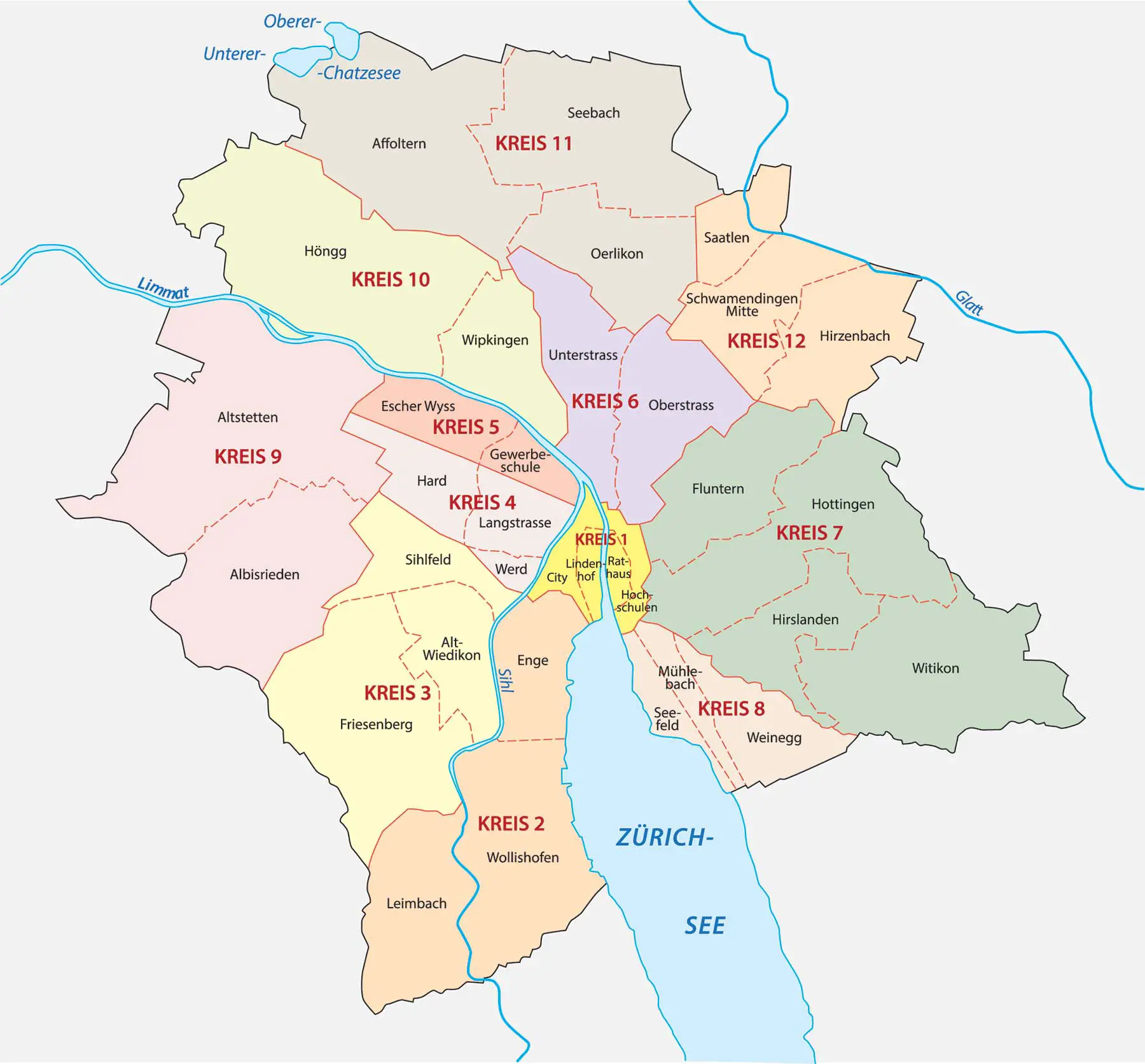
- Zurich Metropolitan Area (ZMA) – defined as Aarau, Winterthur, Rapperswil, Zug, and the surrounding areas, this makes up the central hub of the city
- Niederdorf – part of the old town, this district is located to the eastern side of the Limmat river
- City/Lindenhof – the other part of the old town, which lies to the western side of the river
- Seefeld – located on the eastern shore of the lake, this district is increasingly popular but very expensive
- Langstrasse – translating literally to ‘Long Street’, this area connects districts 4 and 5 and is one of Zurich’s most cosmopolitan neighborhoods
- Zurich West – formerly an industrial area, this is now one of the city’s best entertainment areas
- Enge & Wollishofen – located on the western shore of the lake, this area is more relaxing than Seefeld
- Zurich Nord – located to the north of Zurich and close to the airport
Below is a further breakdown of these areas and what they have to offer expats planning on living in Zurich.
Zurich Metropolitan Area (ZMA)
If you’re looking for a relatively easy commute, access to schools, and Zurich’s vibrant social scene, then you can’t go wrong with living in the Zurich Metropolitan Area (ZMA). Defined as Aarau, Winterthur, Rapperswil-Jona, Zug, and the surrounding areas, this makes up the metropolitan hub that surrounds the city center.
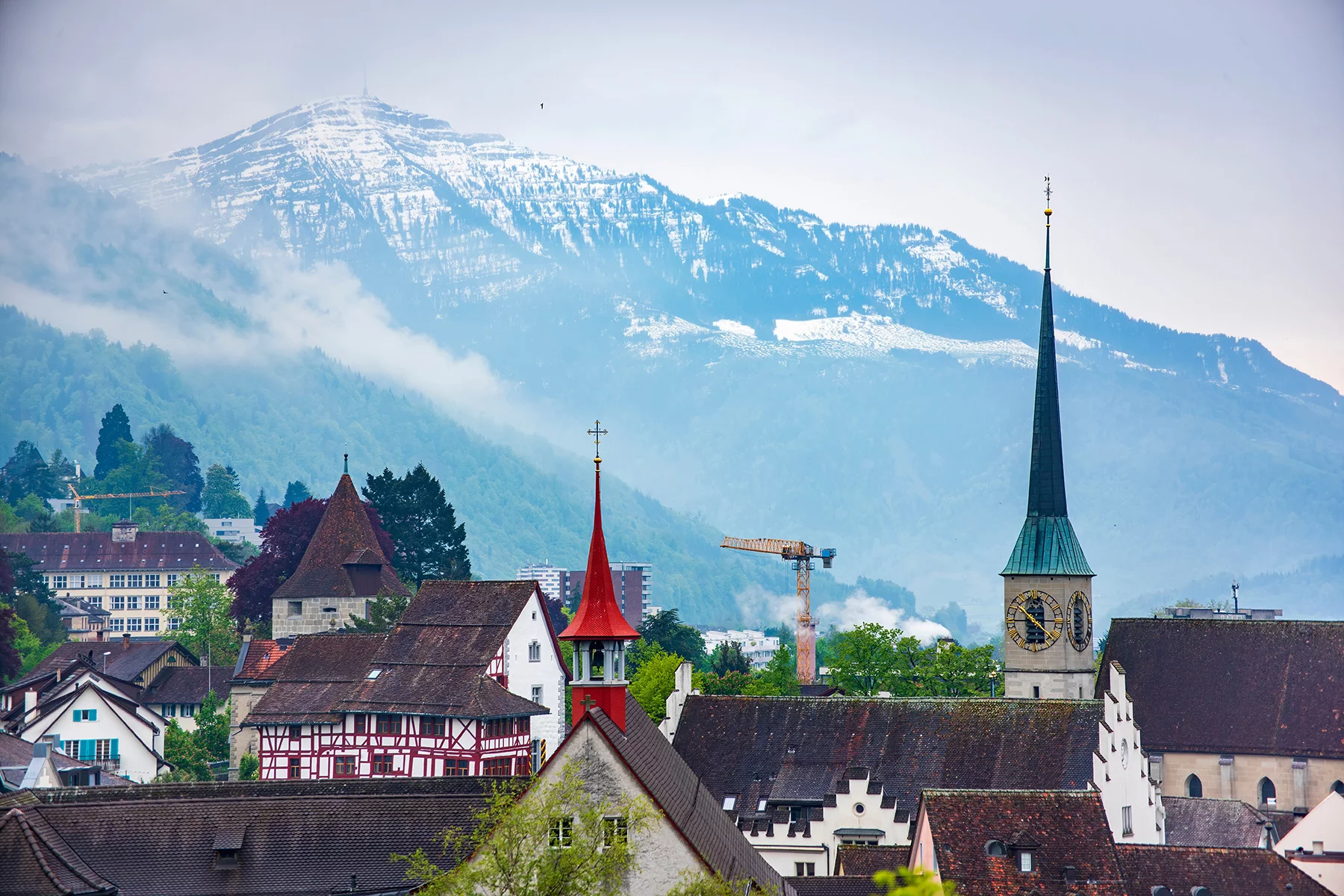
In terms of transport, all of these areas have at least four trains that leave every hour, getting you to downtown Zurich (Zurich HB Main Station as the train stop is known) in half an hour at most (and even less in some areas). This means that you won’t have to crawl out of bed at 06:00 to drag yourself to work – which is always nice.
Just bear in mind when looking for a place to stay in the ZMA, that landlords are incredibly thorough with background checks. As a result, this process can take a while, so get the ball rolling as early as possible. Don’t let this put you off, though, as the ZMA is a great place to live in Zurich.
Here is a breakdown of the different towns, cities, and villages within the ZMA and what they have to offer expats looking to live there.
Aarau
Environment in Aarau
You would be forgiven for forgetting that you live in a financial capital if you choose to settle in Aarau. Located on the banks of the Zurich River, this quaint, idyllic village looks akin to an impressionist painting come to life. The people are famously friendly and the surroundings are incredibly scenic, making it one of the most laid-back areas in the city while still having great access to the center.
Facilities in Aarau
Living in Aarau gives you access to one of the best parks in the city by way of the Wildpark Roggenhhausen. Open 365 days a year and totally free, it’s a great day out for some deer and wild boar spotting. There are also enclosures where you can feed the animals. One of Switzerland’s best art museums, Aargauer Kunsthaus, can also be found in Aarau, as well as the natural history museum, Naturama Aargau.
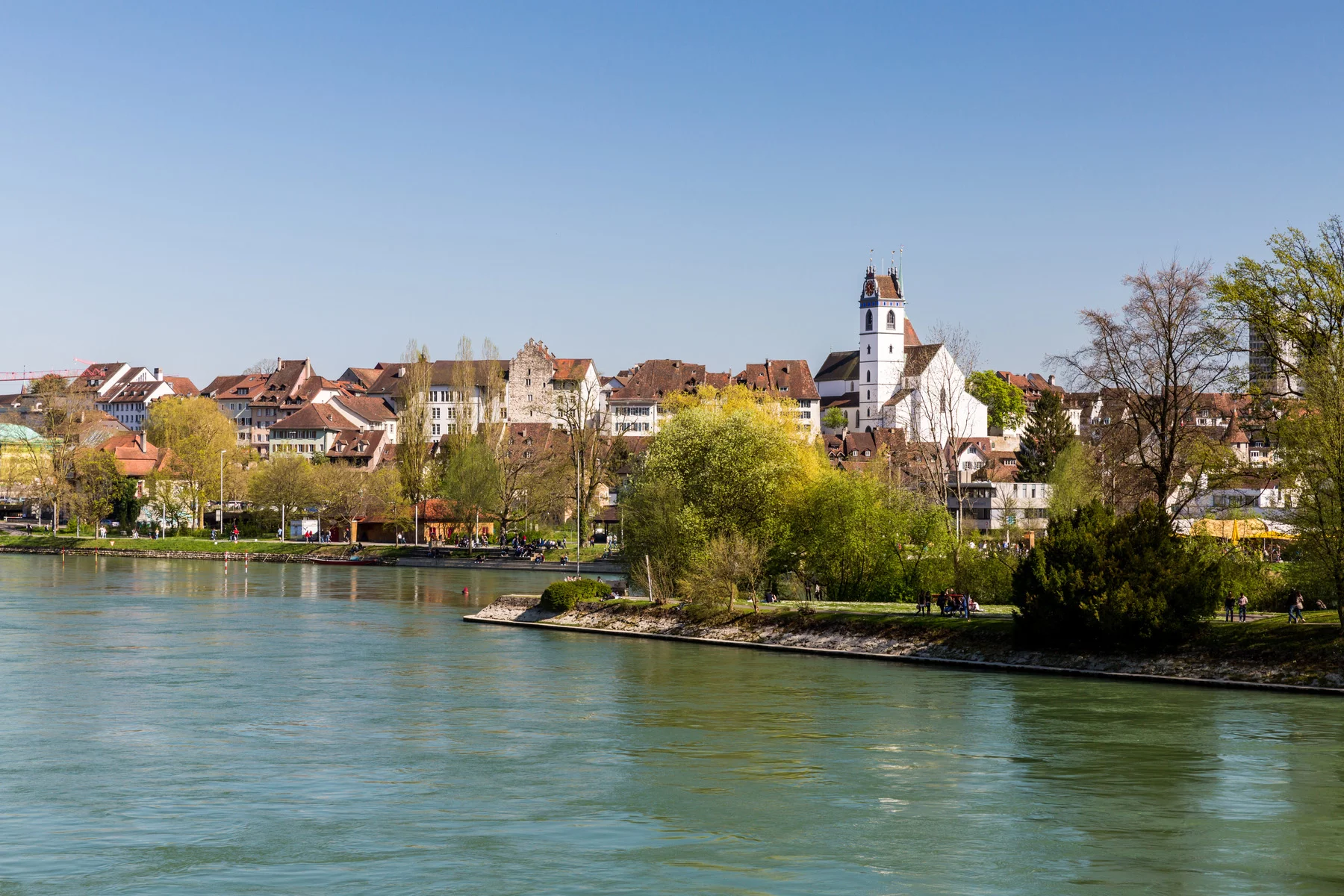
Furthermore, Aarau is home to the amazing Freibad Schachen (open-air swimming pool), which is perfect for summer relaxation. A number of great historical sites and architectural wonders also make this a fascinating place to explore.
In terms of bars and restaurants, there is plenty to choose from and you can’t really go wrong. Café Bar Lockentopf should be top of your list. Although it’s pricey, it’s worth it for some of the best food and drink in town. For the best coffee in the village, be sure and check out Home Barista Shop. And for a night out, there are a few venues dotted about, including the Kiff, which hosts numerous gigs and stand-up comedy nights.
Housing and accommodations in Aarau
Compared to other relatively central locations in the city, Aarau is on the lower end of the scale in terms of price. There’s a good mix of apartments – from functional to fancy – as well as townhouses and bungalows. A three-bedroom apartment that’s ‘pragmatic’ with its space can be found for CHF 250,000, which is very reasonable. Of course, there is plenty at the higher end, too, with spacious designer apartments ranging from between CHF 750,000 and CHF 1,000,000. If you’ve got your heart set on a house, however, you could find a detached bungalow (with around five bedrooms) starting at CHF 1,250,000. If having a garden is a priority, though, then you’re looking at closer to CHF 3,000,000.
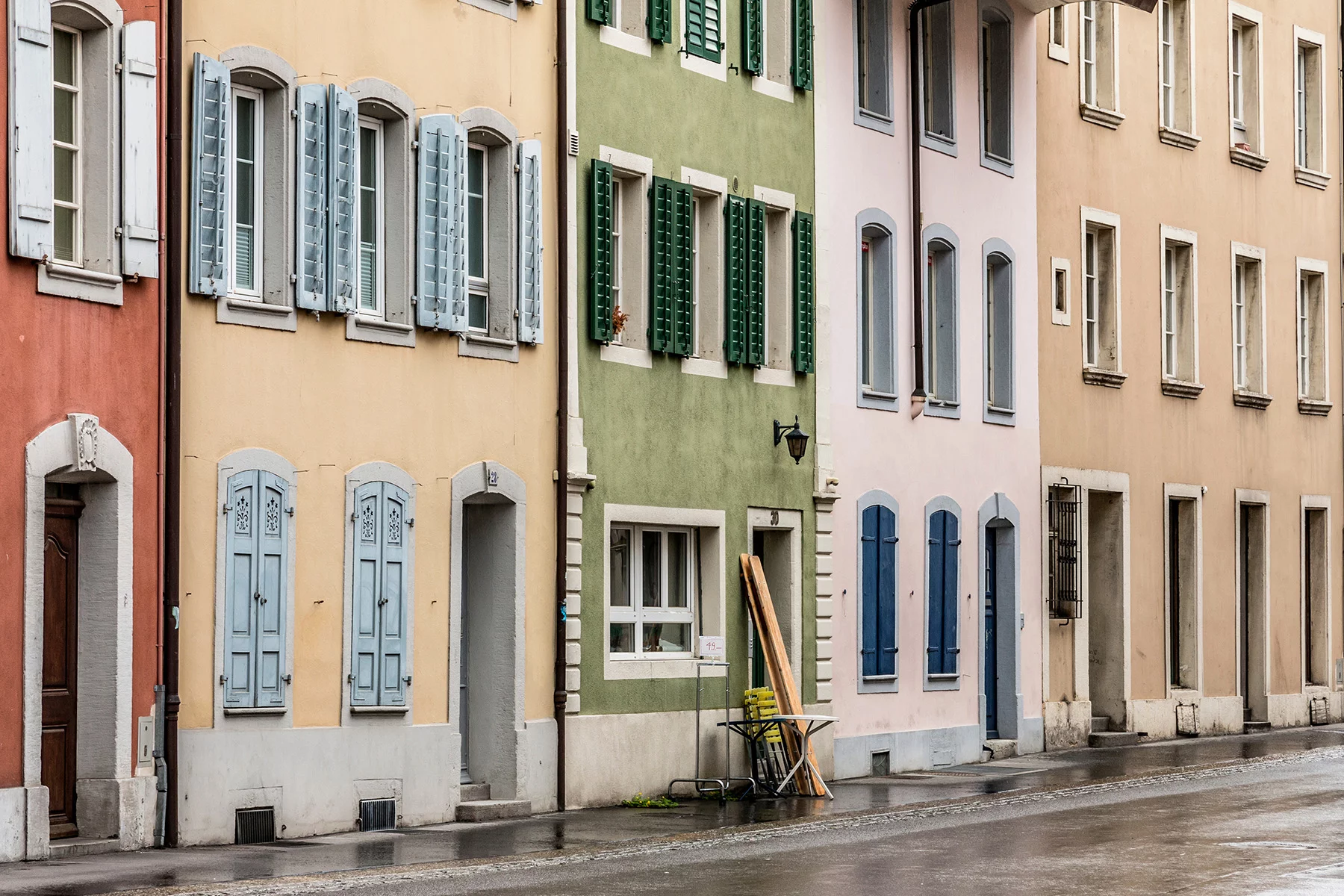
In terms of renting, apartments are the way forward in Aarau and you’ll rarely see a house up for rent. For starters, you can find a nice, airy studio for around CHF 750 a month. If you’re looking for something a bit bigger, however, there’s always a good selection of three-bedroom apartments that range from around CHF 1,300 to CHF 1,700.
Work and business in Aarau
Aarua is very much a Swiss-German town and many of the businesses have a real local flavor. Most of the expats living here are commuters heading to other parts of the city, so if you want to work here, you will ideally have to have a strong grasp of the language.
What Aarau is best for
Expats with a love of the great outdoors and community who still want to be in touch or have to work in the city center. It’s also great for families with plenty of outdoor activities and a neighborhood where you can relax with young kids about.
Winterthur
Environment in Winterthur
Winterthur is one of the largest cities within the canton of Zurich and has a population of more than 110,000. The medieval heart of Zurich is bustling with plenty of markets, shops, and restaurants, yet still offers a sense of old-town charm.
Facilities in Winterthur
This canton of Zurich is, to say the least, culturally dense. It boasts 17 museums, including the famous Oskar Reinhart Foundation Museum and the Swiss Science Center Technorama, which has hundreds of hands-on activities and experiments that are perfect for curious kids. There is also an incredibly dynamic annual schedule of cultural events to enjoy in Winterthur. In particular, don’t miss the Afro-Pfingsten Festival and Winterthurer Musikfestwochen.
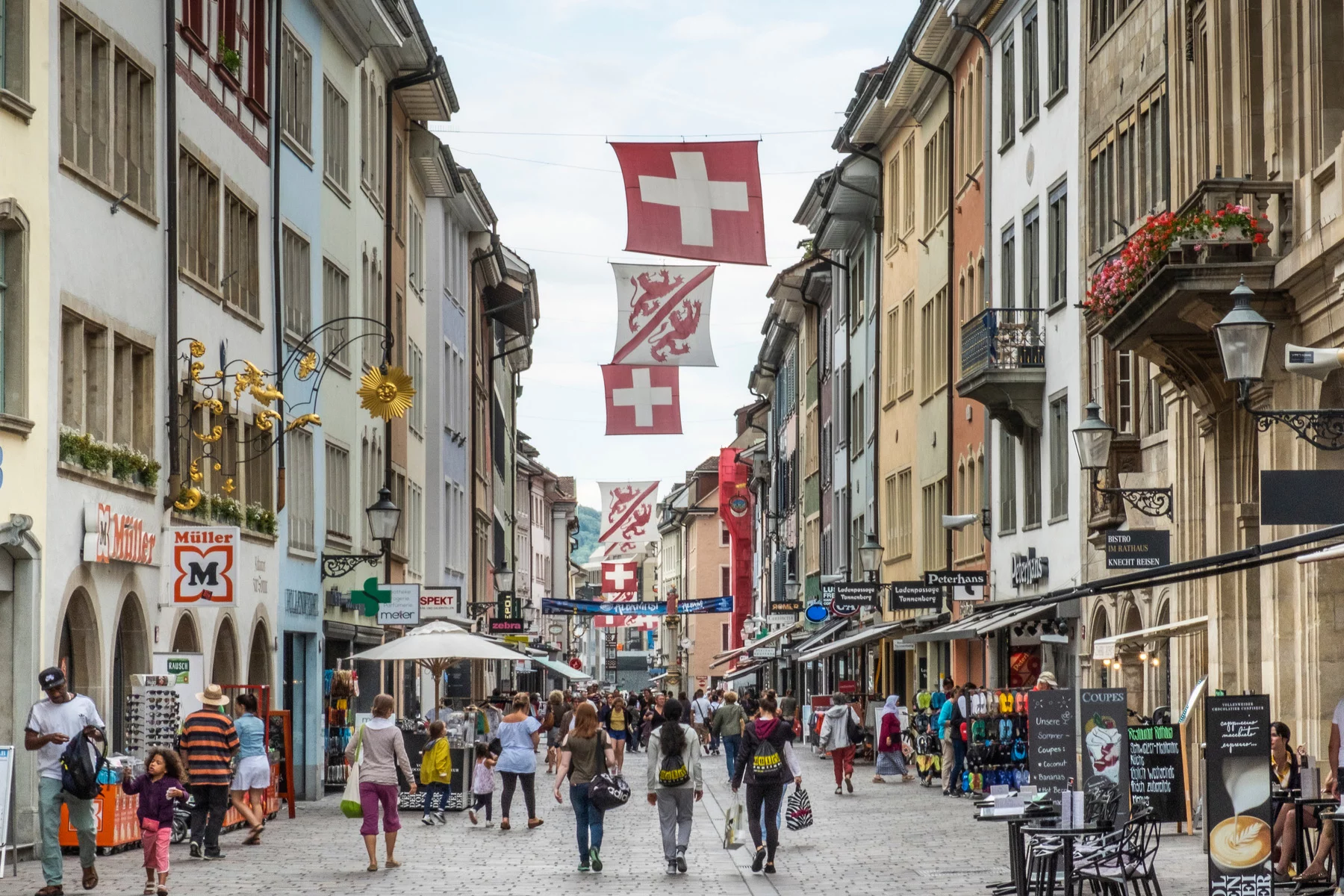
Being the sixth most populated residential area in the whole country, Winterthur rightly delivers on the food, drink, and entertainment front. Be sure to sample the awesome pizza and beer on offer at Lofthouse 77. For one of the best Swiss restaurants in the city, head to the outskirts of Winterthur to Wiler32. And for high-end, contemporary European dining, few places are better than Trübli. Ready for a night out? Winterthur’s got you covered. Check out Kraftfeld for – as the name suggests – an amazing selection of craft beers set in an awesome, refitted warehouse. If dancing and cocktails are more your speed, though, Green Klub is a cool spot with great drinks and tunes.
Housing and accommodations in Winterthur
Considering how close Winterthur is to the city center of Zurich, property prices are considerably higher than in other areas, even within the ZMA. If you’re looking to buy, then you’ll likely need to settle for an apartment, as it is very much a metropolitan area. Prices on the outskirts of the region can see you land a three-bedroom apartment in the region of CHF 900 to CHF 1,100,000. If you’re looking to live in or around the center of Winterthur, though, the prices can start climbing closer to CHF 2,000,000 to CHF 2,500,000 for anything between a three and five-bedroom apartment (usually with decent-sized living areas).
Renting in Winterthur follows a similar trend. You can find a three-bedroom apartment to rent on the fringes for around CHF 1,500 per month with prices climbing to CHF 2,500 for something similar closer to the center of the canton.
Work and business in Winterthur
Being a major population zone in the city, Winterthur is home to some large companies as well as plenty of banks, shops, pharmacies, and hospitality spaces. One of the largest companies is industrial engineering and manufacturing firm, Sulzer Ltd. The Union Bank of Switzerland and insurance group AXA Winterthur also have a large workforce in the canton.
What Winterthur is best for
With nearly a quarter of the population being non-Swiss, this is a great spot for expats. It sports the city’s largest train station, so getting around Zurich (and beyond) is no problem. Being such a populous area, there is also plenty to do in terms of sight-seeing, eating, drinking, and shopping.
Rapperswil-Jona
Environment in Rapperswil-Jona
Found on the Riviera on the upper half of Lake Zurich, Rapperswil-Jona lives up to its name as the Town of Roses. Small, quaint, and bursting with medieval charm, the area offers dramatic views, charming local businesses, and of course, the famous castle overlooking the town. So, where does its name come from? Well, from the 16,000 roses that bloom in the gardens of the Capuchin Friary and on the Schanz; a rose garden designed for the blind.
Rapperswil-Jona facilities
There are loads of things to see and explore in this picturesque town. First and foremost, you’ll want to check out the beautiful medieval castle, Schloss Rapperswil, that overlooks the town. The rose gardens are another must-see. The town is also a great place to take in some culture and history and explore great museums such as the Polish Museum, as well as the architectural wonder that is Enea Baummuseum.
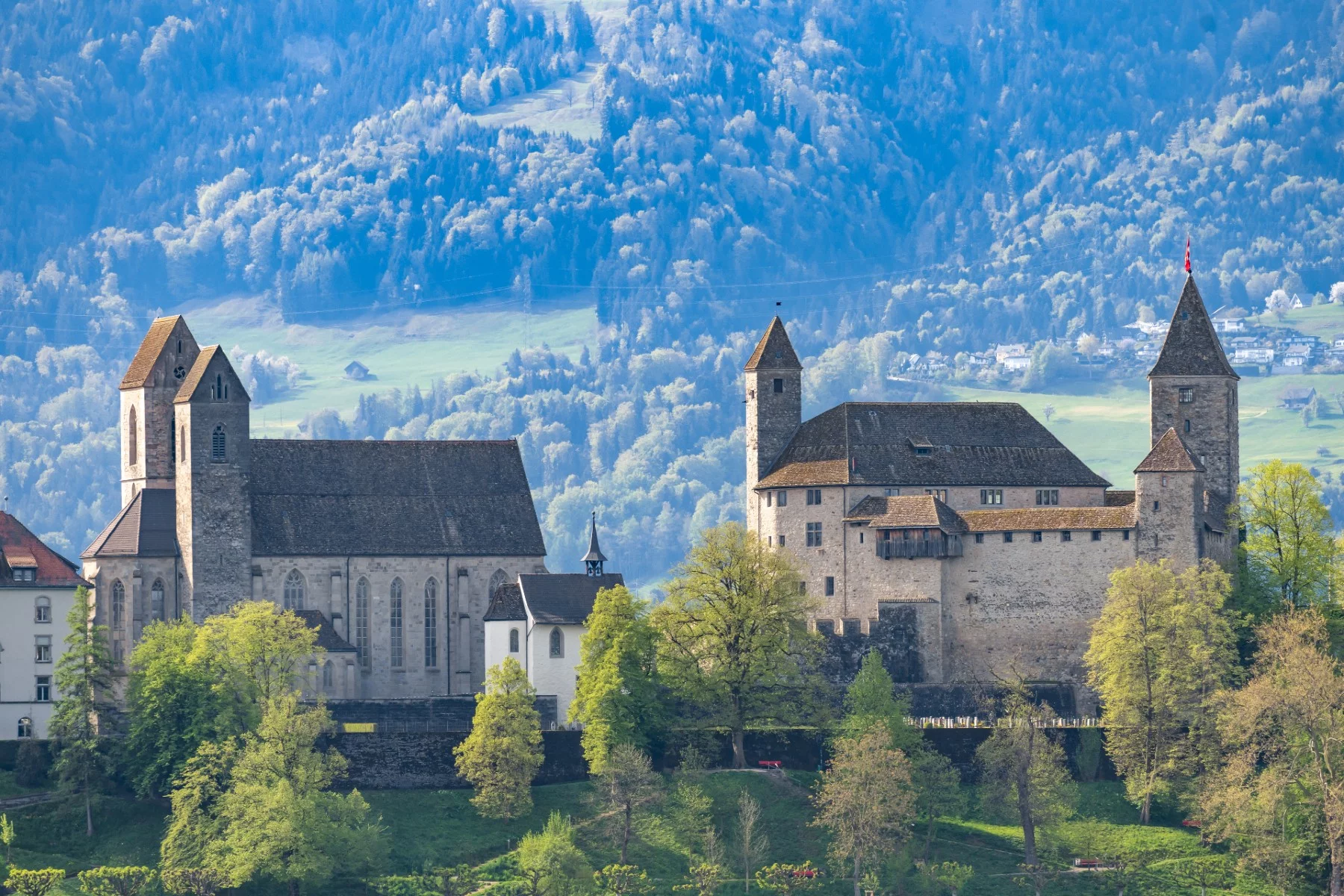
Rapperswil-Jona is the epitome of a nice little town, so wild nights out are hard to come by. There are plenty of good food and drink options, though, such as the wonderful seafood at Pilgerplätzli and the delicious cocktails at Hophie’s Door 5 Bar & Club. Being a popular tourist destination, there is some great international cuisine available in Rapperswil-Jona. One pick would be the universally-loved ramen at Ninja Noodle (the name’s a bit daft, granted, but the food’s genuinely amazing). If you’re craving some Persian, though, Banoo im Rössli is one of the best in the city.
Housing and accommodations in Rapperswil-Jona
The town has a reasonable price range depending on how much you are willing to sacrifice on space. For example, you could buy a lovely, airy three-bedroom apartment for around CHF 1,200,000 or you could get the same number of bedrooms, but with slightly cozier environs for a fairly affordable (for Zurich, anyway) CHF 800,000. However, houses are rare to come by in this small town. And when they do come on the market, they’re usually lovely and luxurious, with a hefty price tag of anything upwards of CHF 3,000,000.
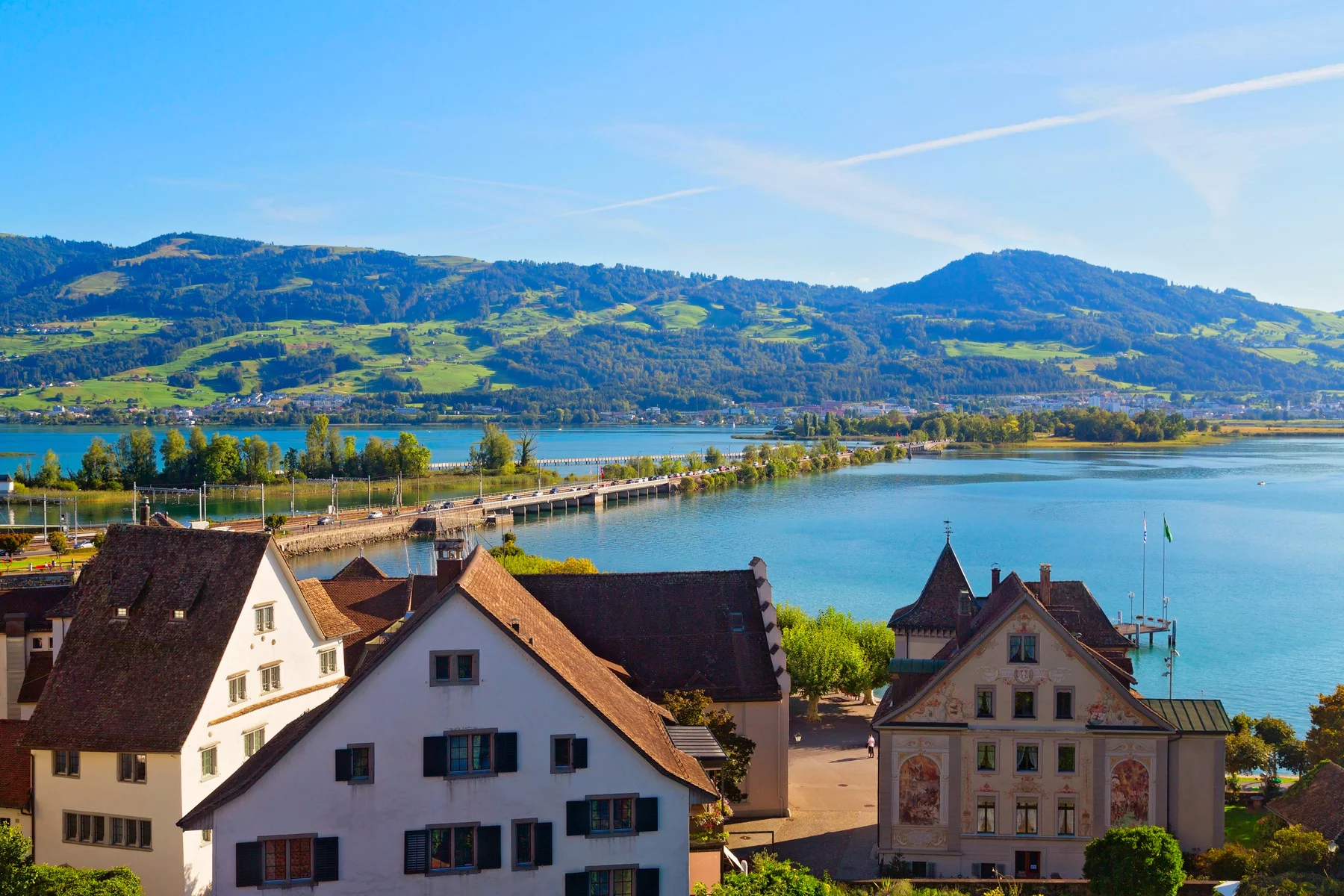
Renting in Rapperswil-Jona definitely edges towards the higher end of the spectrum. For instance, a standard three-bedroom property will cost you around CHF 1,500 per month. That said, there is a decent selection of smaller places on offer, with two-bedroom flats costing closer to CHF 1,200 and studios setting you back around CHF 1,000 per month.
Work and business in Rapperswil-Jona
Although it’s a fairly small town (with a population of around 25,000), Rapperswil-Jona is a really popular weekend destination for visitors from other parts of the city and out-of-town tourists. As such, there is an availability of jobs that cater to this market, including hospitality, shops, restaurants, and customer service.
What Rapperswil-Jona is best for
This idyllic little medieval town is ideal for couples moving to Zurich. It’s a joy to explore with a partner, has great restaurants to accommodate the weekend tourist crowd, and is within commuting distance from Zurich city center.
Zug
Environment in Zug
With its famous cherry trees, picturesque Old Town, and scenic location on Lake Zug, this small town lies just 20 minutes from Zurich city center. This means that you get to enjoy the laid-back lifestyle that comes with living in a small town while still being close to all the action.
Facilities in Zug
Your first order of business in Zug should be to check out the Zytturm Clocktower. With its beautiful astronomical clock, this 16th-century structure offers 360-degree views of the town. If you’re looking for something a bit different, however, Zug is home to some of the best escape rooms in Zurich by way of Inside Breakout. For chilling out and enjoying a cheeky beer or ice cream, though, head down the beautiful waterfront, Seebad Seeliken. Zug isn’t short of cultural goodness as well, with the Museum Burg Zug and Museum für Urgeschichte(n) showing that, yes, history can be fun.
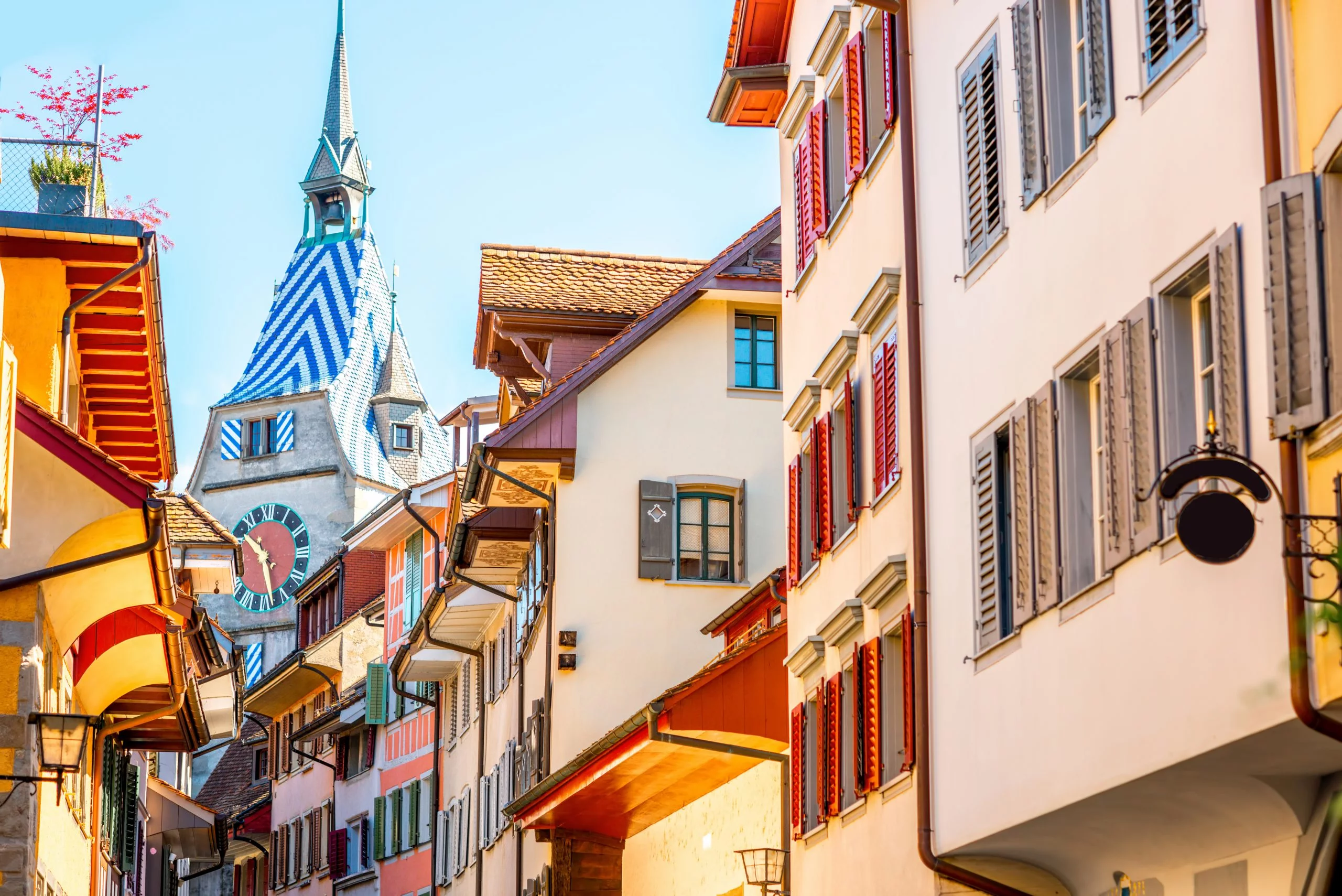
In terms of food and drink, your first thought should be to take advantage of the resplendent waterfront views. You can do just that at Strandbad Zug which serves great food and drinks, has a friendly atmosphere, and even throws in stunning views as a free bonus. For some cracking Swiss fare, Restaurant au Premier (found in Hotel Oschen), lives up to its name and is considered to be one of the best in Zug. If you’re something of a discerning carnivore, however, Meating serves some of the best meat and friets in the city. These are extremely popular, though, so booking in advance is advised.
Housing and accommodations in Zug
Being one of the most sought-after locations in all of Switzerland comes at a price – literally. Zug is not cheap, and buying a decent-sized, two-bedroom apartment here will cost you around CHF 1,000,000. The more luxurious options can go as high as your imagination can fathom. Houses are rarer than unicorns on the market here, however. And anything that is available, even apartment-wise, will usually involve you having to request the price.
Being one of the most sought-after locations in all of Switzerland comes at a price – literally. Zug is not cheap, and buying a decent-sized, two-bedroom apartment here will cost you around CHF 1,000,000. The more luxurious options can go as high as your imagination can fathom. Houses are rarer than unicorns on the market here, however. And anything that is available, even apartment-wise, will usually involve you having to request the price.
In terms of renting, there are plenty of studios and single-bedroom apartments up for grabs, unlike in many other regions. However, even a basic, furnished studio will cost around CHF 2,000 to CHF 3,000 per month. Three and four-bedroom properties – which are generally exquisite – can range from between CHF 4,000 and CHF 6,000. There are options on the lower end of the scale, too, however, you’ll have to request the price for anything bigger and/or better.
Work and business in Zug
Being only 20 minutes from Zurich, Zug is a commuter’s dream. However, being the richest canton (and the one with the lowest taxation) in Zurich means that there are opportunities to work with some huge local and international companies located in the city; namely Siemens Building Technologies, Nord Stream AG, and several Cryptocurrency companies
What Zug is good for
This is honestly one of the best places to live in all of Zurich. Its stunning and convenient setting, combined with a plethora of great restaurants and things to do, makes it an extremely desirable place to live for any expat. However, being the smallest canton in Zurich and having the lowest taxation also means that getting in is hard and expensive.
Enge and Seefeld
These two areas of Zurich’s District 2 stand out as choice locations within the broad ‘Zurich city center’ terminology. This is because they are considerably more liveable than say Altstadt in District 1, which is better suited to visitors rather than residents.
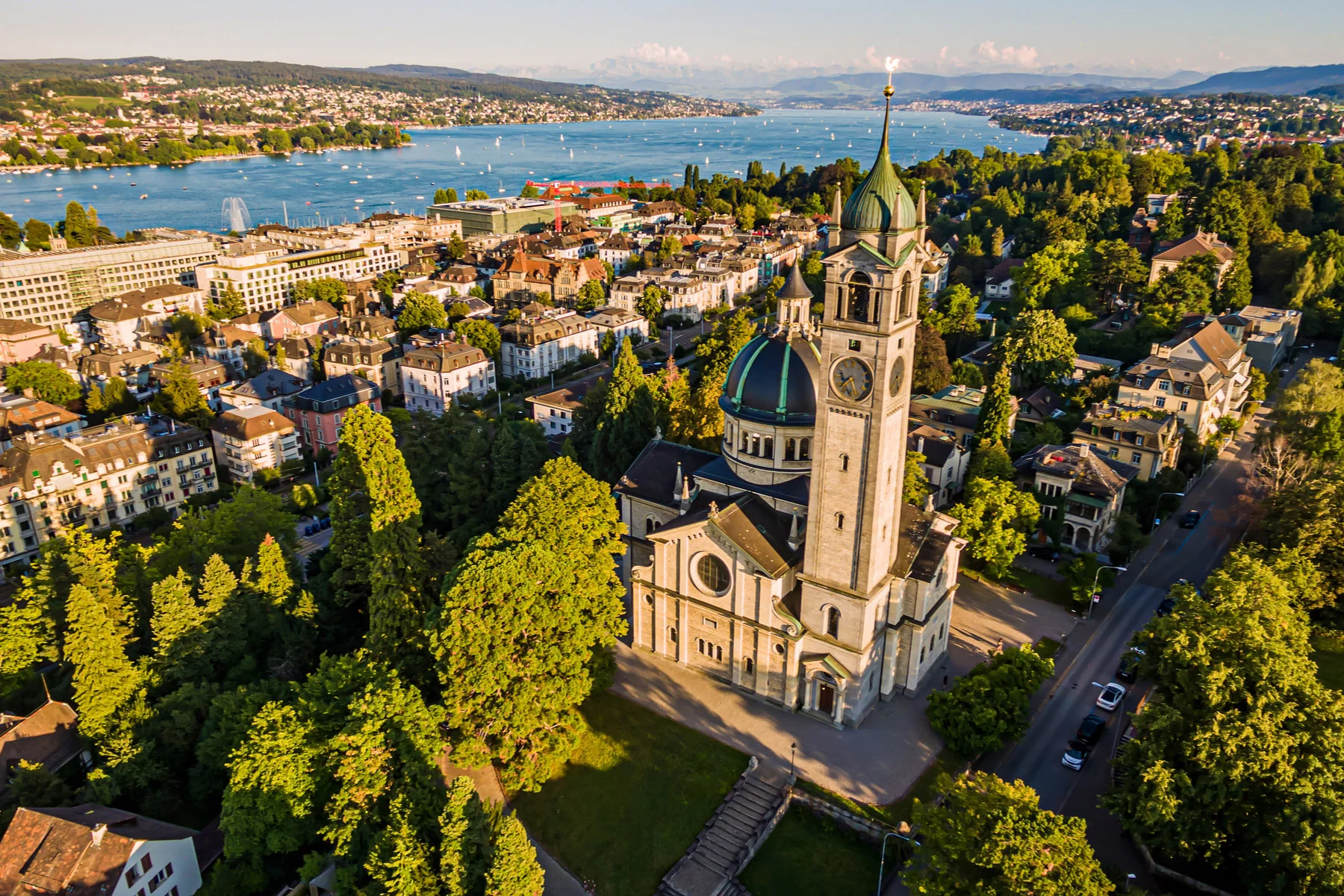
Environment in Enge and Seefeld
Despite being so close to the heart of Zurich, Enge is famed for its naturalistic, leafy surroundings. It offers a plethora of parks, swimming spots, and charming promenades, making it feel spacious and comfortable, despite it being basically in the middle of Zurich. Seefeld’s landscape, meanwhile, is dominated by its incredible promenade that runs along Lake Zurich. This is a great place to unwind and even take a dip in one of the many designated swimming spots.
Facilities around Enge and Seefeld
For great music and a welcoming atmosphere, be sure to check out Bar Enge. This area is also home to a couple of fantastic museums by way of the Rietberg and the FIFA World Football Museum.
As for Seefeld, you should become intimately familiar with the beautiful promenade, known as the Zürichhorn. This is a great spot to stroll, cycle, skate, lounge about on the shore, and take a dip in summer. You can also watch street artists gather crowds around their Trompe-l’œil chalk drawings and pick up some handmade jewelry at the local street stalls.
Transport to Enge and Seefeld
Enge is located a mere five-minute train ride away from Zurich HB Main Station, making it extremely easy to get to. Given this short distance, cycling is also a popular way to get to and from the city.
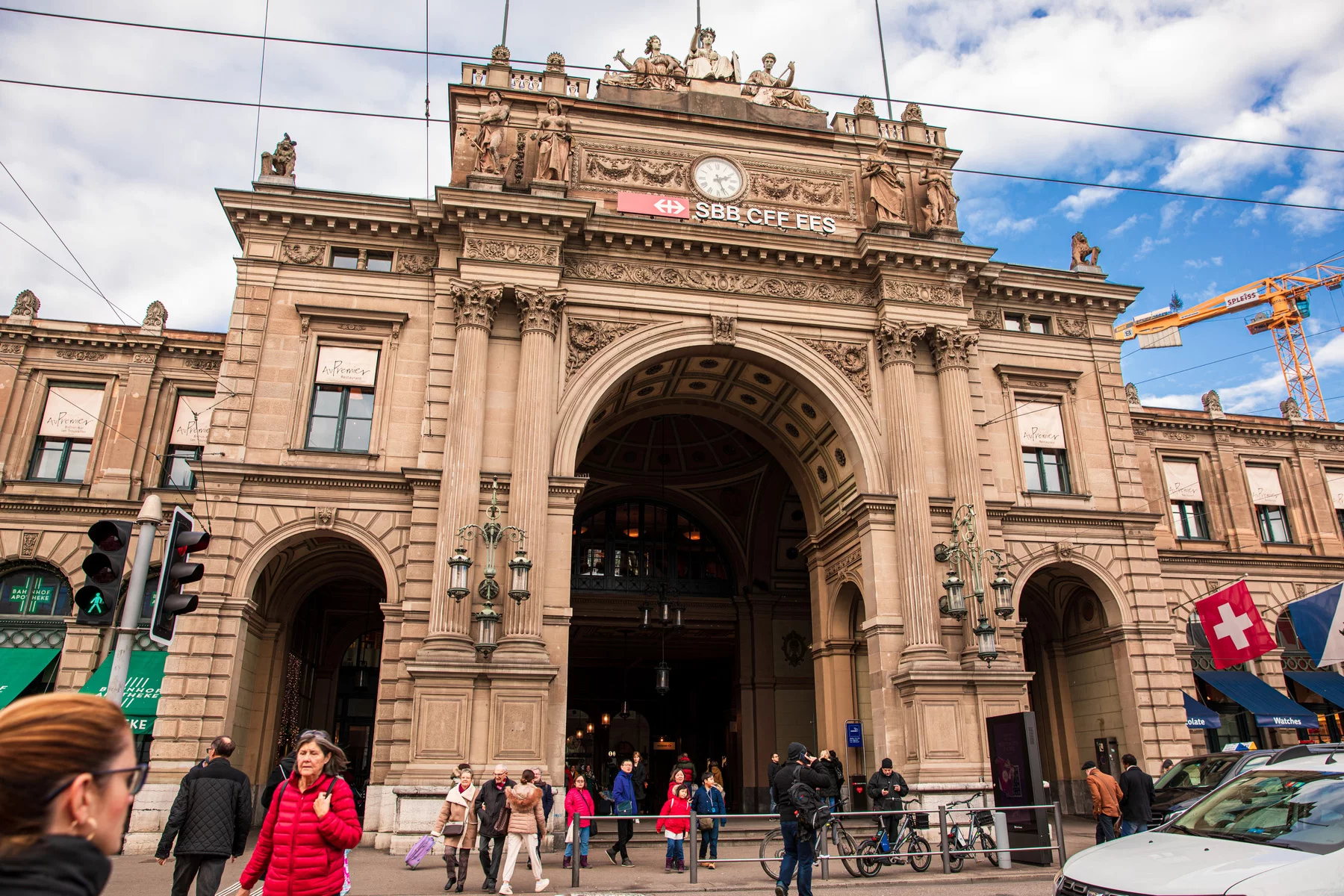
Since the train station is located right in the middle of Seefeld, the journey to Zurich HB Main Station takes between 14 and 18 minutes depending on what train you get. However, if you live in the northern tip of the district, then cycling or walking is just as viable an option if you’re looking to head to the center.
Housing and accommodations in Enge and Seefeld
Since space is more limited, apartments reign supreme in Enge and Seefeld – and they aren’t particularly cheap, unfortunately. Generally speaking, the city center is only realistically suitable for single expats or those with older children. For Enge, you could realistically rent a three-bedroom property from around CHF 3,200 to CHF 4,500 per month, with space being the telling factor in the price swing. In terms of buying, Enge is very much on the ‘price on request’ scale. That said, places do pop up with actual asking prices. These can range from the occasional CHF 500,000 studio to CHF 2,000,000 three-bedroom apartments.
Remarkably, Seefeld manages to be even pricier. However, this isn’t really surprising given how desirable a place it is to live. For renting, the cheapest you are likely to find would be a two-bedroom property for around CHF 2,000 per month. However, this can easily climb to closer to CHF 4,000 a month for more space and better views.
Work and business in Enge and Seefeld
Enge is a great place to live if you are looking for a job as numerous recruitment agencies are based here. Other notable companies come by the way of large insurance firms such as Qatar Reinsurance Company and the Swiss Reinsurance Company.
Seefeld feels much more residential in nature, therefore, big businesses aren’t as abundant as they are in Enge. That said, with it being so close to the city center, there are plenty of recruiters to help you land a job. The Porsche Center also calls Seefeld home if that’s your game.
What Enge and Seefeld are best for
With its enviable green spaces, great spots for cycling, walking, swimming, and sunbathing, Enge really does offer something for everyone. And that’s not even taking into account how central it is.
Seefeld also has fantastic traits and remains a decidedly laid-back district, despite its central location. That said, it is notable for its great shopping scene which offers numerous grocery stores, furniture and flower shops, designer stores, and more. Most importantly, though, are the unbeatable views of Lake Zurich. These make it a great place to be during the summer. So again, it’s an area that is hard not to recommend to anyone if you can find a suitable place to live.
Fluntern
If you want to live somewhere central, but with less hustle and bustle, then Fluntern in District 7 offers easy access to the city center. However, be aware that properties here come at a premium. That said, they are really close to the zoo and you can’t really put a price on that.
Environment in Fluntern
Fluntern is one of the quietest suburbs you will find anywhere within a reasonable distance from Zurich city center. This is in no small part due to the fact that much of the district is taken up by Zoo Zürich, meaning that there is a huge amount of nature to be explored.
Facilities around Fluntern
Living, or even taking a trip to Fluntern, wouldn’t be complete without checking out one of the best zoos in Europe by way of Zoo Zürich. This place is absolutely massive and takes up most of the district. In fact, it requires multiple visits to experience all of its indoor and outdoor enclosures, walking paths, and other general naturalistic delights.
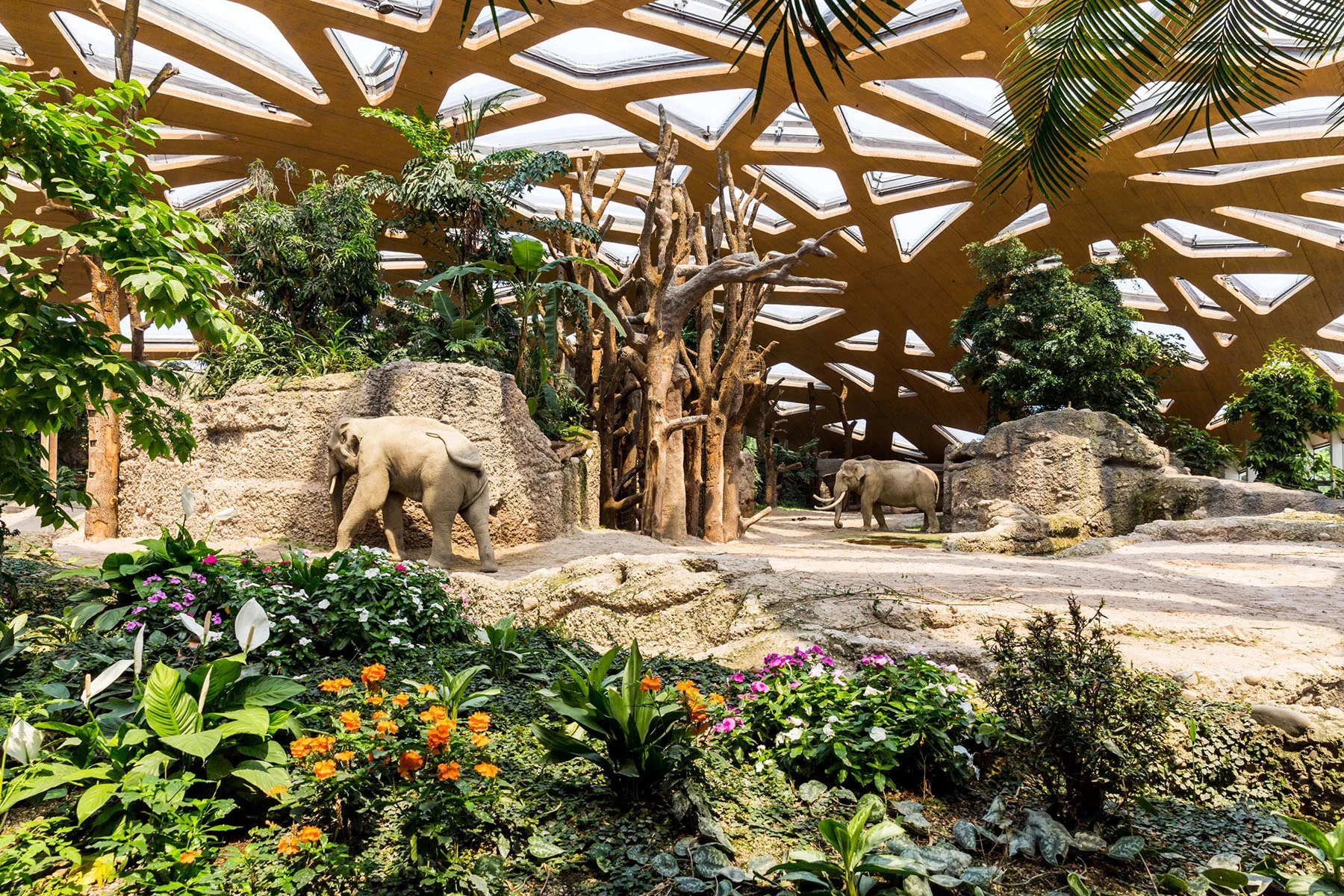
In terms of eating out, there is a good selection in Fluntern as a result of all the tourist traffic the zoo brings. First up, check out Sento Bar & Lounge, located in the Plattenhof Hotel, which is ideal for a quiet beverage and suitable for kids. The contemporary European fare at Hermanseck also comes highly recommended. And for a good, hearty, family meal, head to Grain (be sure to try the ribs). Finally, who would have thought that humble Fluntern houses one of the best Thai restaurants in Zurich in Vees Bistro? But hey, it does.
Transport to Fluntern
Trains from Fluntern will get you to Zurich HB Main Station in around 25 minutes.
Housing and accommodations in Fluntern
Because of its desirable location and top-shelf liveability, Fluntern is, unsurprisingly, expensive. This is another district where houses for rent on the market are about as common as unicorns. In terms of apartments, you could rent for around CHF 2,000 a month on the lower end of the scale. This can easily climb to CHF 3,000 for more spacious places, though.
There are always a few listings for houses floating around in Fluntern, which are almost always on the insane level, price-wise. Again, you will have to request the eye-watering asking prices for the six or seven-bedroom luxury homes here. Buying an apartment is slightly more achievable, however, with cute two-bedroom properties starting at around CHF 900,000.
Work and business in Fluntern
With Zoo Zürich taking up most of the real estate in this district, it’s not exactly a booming business zone. That said, there are three hospitals in the area: Privatklinik Bethanien, University Hospital of Zürich, and Children’s Hospital Zurich – Eleonore Foundation, which can be great sources of work if that’s your field.
What Fluntern is best for
With great access to one of the best parks and zoos in Europe, as well as plenty of options for eating and drinking, Fluntern is undoubtedly one of the best places to be for young families in Zurich.
Kreis 5 in Zurich West
If you want to mix with the hip, happening poncho-wearing types, then Zurich has no shortage of really cool areas. District 5, or Kreis 5 (or Industriequartier) in Zurich West stands tall among the city’s trendiest areas. It is also within touching distance of the city center, being only an eight-minute train journey to Zurich HB Main Station, as the train stop is known.
Environment in Kreis 5
Kreis 5 essentially offers everything you would expect from a place of this name. Abandoned warehouses from the city’s industrial heyday have been renovated, and others torn down to make way for design-savvy spaces housing a ludicrous number of galleries, bars, restaurants, and clubs. There is also a good selection of cool thrift stores where you can, gasp, grab a bargain, which is borderline sorcery in Zurich.
Facilities around Kreis 5
As you would expect from an area like Kreis 5, there are numerous art galleries to check out, including Galerie Peter Kilchmann, which is home to some amazing works by Swiss and Latin American artists. If you’re looking for some outdoor recreation, then check out Flussbad Oberer Letten in District 5, which features an amazing outdoor swimming spot on the River Limmat.
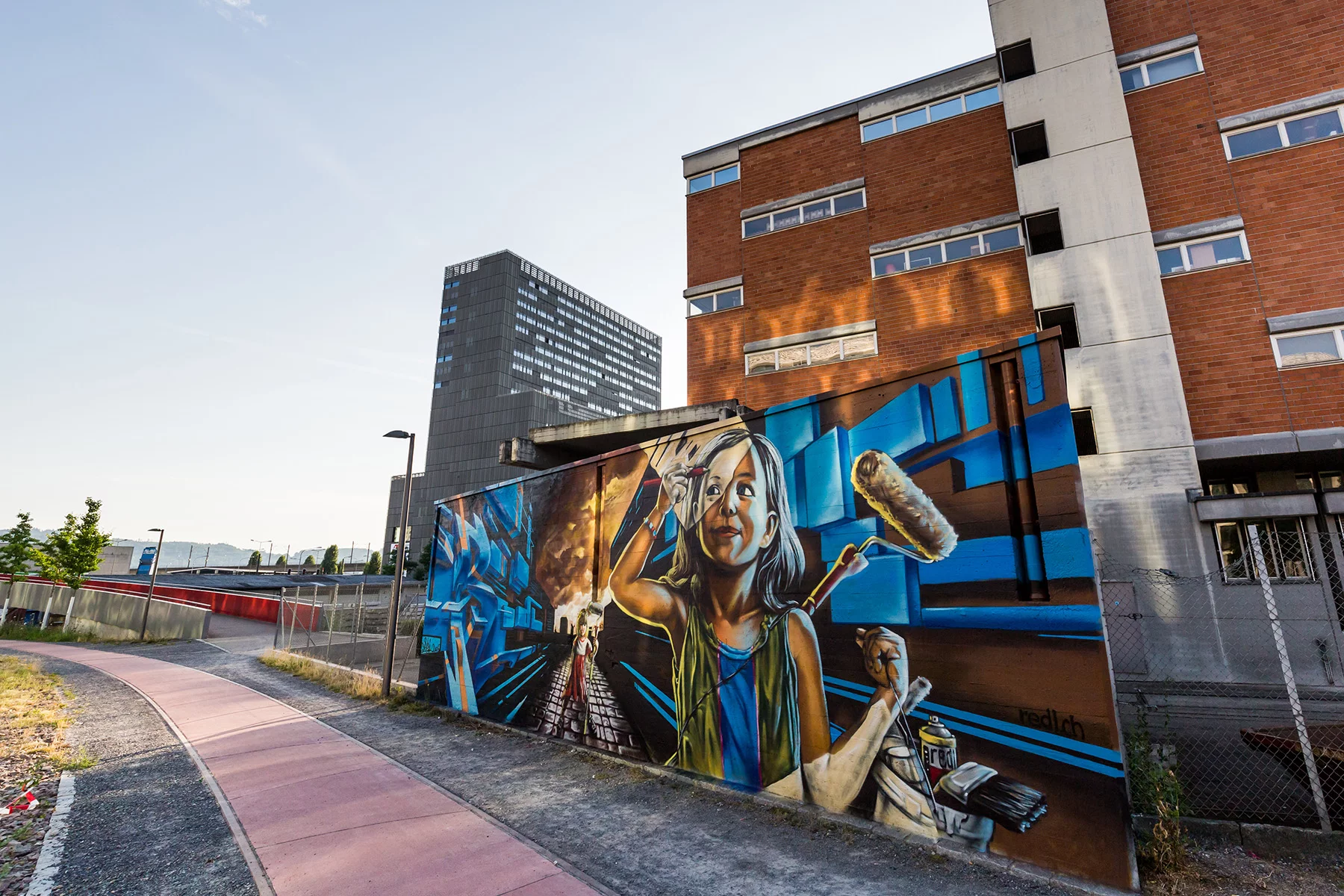
Kreis 5 is undoubtedly one of the coolest places in Zurich to have a drink. Among the many great watering holes is Clouds Bar which is located on the 36th floor of the Prime Tower. The venue offers incredible views but is a fantastic spot in its own right. If you want to be seen in one of Zurich’s trendiest bars, though, Basilica should be high on your list. Its novel interior, which features oriental flourishes and antique punctuations with Roman architecture, makes this one of the most visually interesting venues in Zurich. For something a little less edgy, however, IQ Bar is where you want to be. Exposed brick walls, wooden furniture, and a great red wine selection make this the hallmark of inescapable coziness.
Transport to Kreis 5
With frequent trains running to and from the city center in just eight minutes, Kreis 5 is the ideal spot for expats wanting to enjoy the best of both worlds.
Housing and accommodations in Kreis 5
Because Kreis 5 is bustling and popular, there is always a big demand (and price tag) for living in the district. Apartments here can range from economical studios to sprawling loft spaces. Furnished studios tend to start from CHF 1,200 and quickly get more expensive from there. For something more spacious, three-bedroom properties start from around CHF 3,600. And, if you want to be that mythical Gatsby figure, that big open loft you’ve always dreamed of is only around CHF 9,000 a month. A small price to pay for big dreams.
Work and business in Kreis 5
If you know your way around a cocktail shaker, then you could easily carve yourself out a nice career in one of the canton’s many bars.
What Kreis 5 is best for
Kreis 5 is best suited to young singles looking to make an impact on Zurich’s dynamic social scene. That said, it’s not off-limits to those outside this demographic. It just caters more to sociable types who really like to get out and about – networking, socializing, dating, all that good stuff.
Affoltern
The old industrial area of Affoltern in District 11 is popular among Zurich’s younger residents. Again, it’s handy for the city center with trains taking between 18 and 32 minutes to get to Zurich HB Main Station. Certain locations, such as Lake Katzensee – which lies between Affoltern and neighboring Altburg – also make it an all-year-round hotspot for bird- and nature-watching.
Environment in Affoltern
Because it is so close to Lake Katzensee and offers a lot of green space, Affoltern strikes a unique balance between the edgy industrial chic that other parts of Zurich are famed for. Needless to say, it is the ideal location for nature lovers who enjoy a laid-back life.
Facilities around Affoltern
During the warmer months, Katzensee is a popular spot for walking, taking a dip, and enjoying a barbecue in one of the designated areas. For those who prefer a Sunday afternoon on wheels, the circular route around the lake has a separate track for cyclists. And in winter, the scenic lake is transformed into a giant natural ice rink. If you’re looking for something fun indoors, though, you can hit the bowling lanes at FUN BOWL Stockmatt.
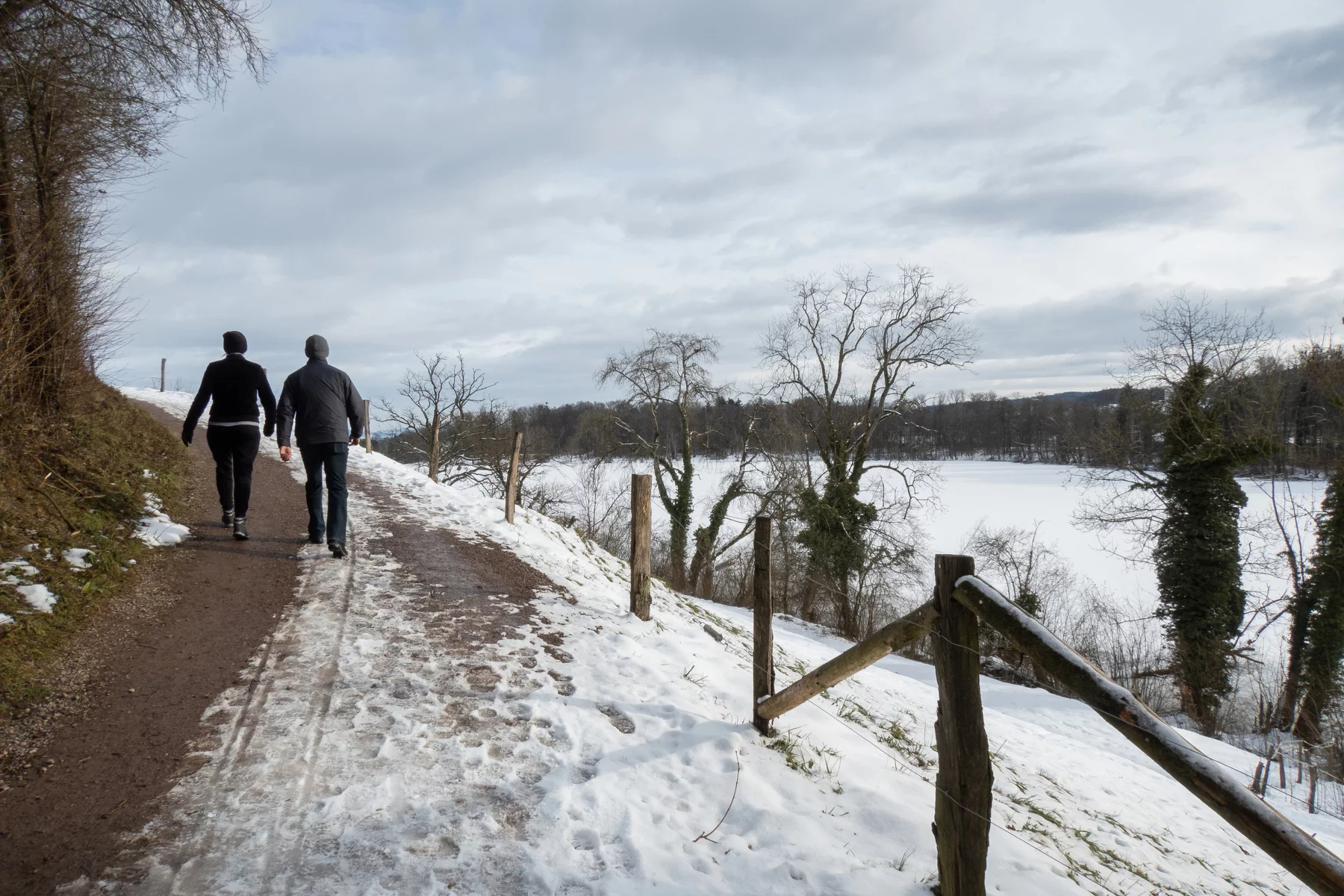
When you’ve had your fill of the great outdoors, Affoltern is also home to some great restaurants. For fantastic local cuisine, be sure to check out Frieden, a proper swiss Gastropub. Cozy neighborhood places are a staple in Affoltern, and few nail this as well as Büsi. You can also tuck into hearty Italian fare at Ristorante Pizzeria da Enzo, a transportive trattoria located right in the heart of Affoltern.
Transport to Affoltern
Trains take between 18 and 32 minutes to get to Zürich Hauptbahnhof, depending on which one you get, making this a good option for both commuters and expats wanting to live within a reasonable distance from the city center.
Housing and accommodations in Affoltern
Affoltern is definitely one of the more reasonably priced areas of Zurich. You can find a nice, cooly decked-out two-bedroom apartment for around CHF 1,500. Three-bedroom places usually float around the CHF 2,000 mark.
Work and business in Affoltern
Affoltern isn’t exactly a Fortune 500 hub and is very much a residential and leisure district. That said, a glance through job listings will present you with lots of opportunities with local financial, hospitality, and IT firms.
What Affoltern is best for
With a great location, plenty to occupy nature and nightlife lovers, and a slightly more reasonable price tag than some of its ultra-gentrified neighbors, Afoltern is a great middle-of-the-road option that offers something for everyone.
Lake Zurich: the Silver and Gold Coasts
One of the most scenic areas in the city, the banks of Lake Zurich are split into two neighborhoods – the Gold and Silver coasts (you can guess which one gets the sun).
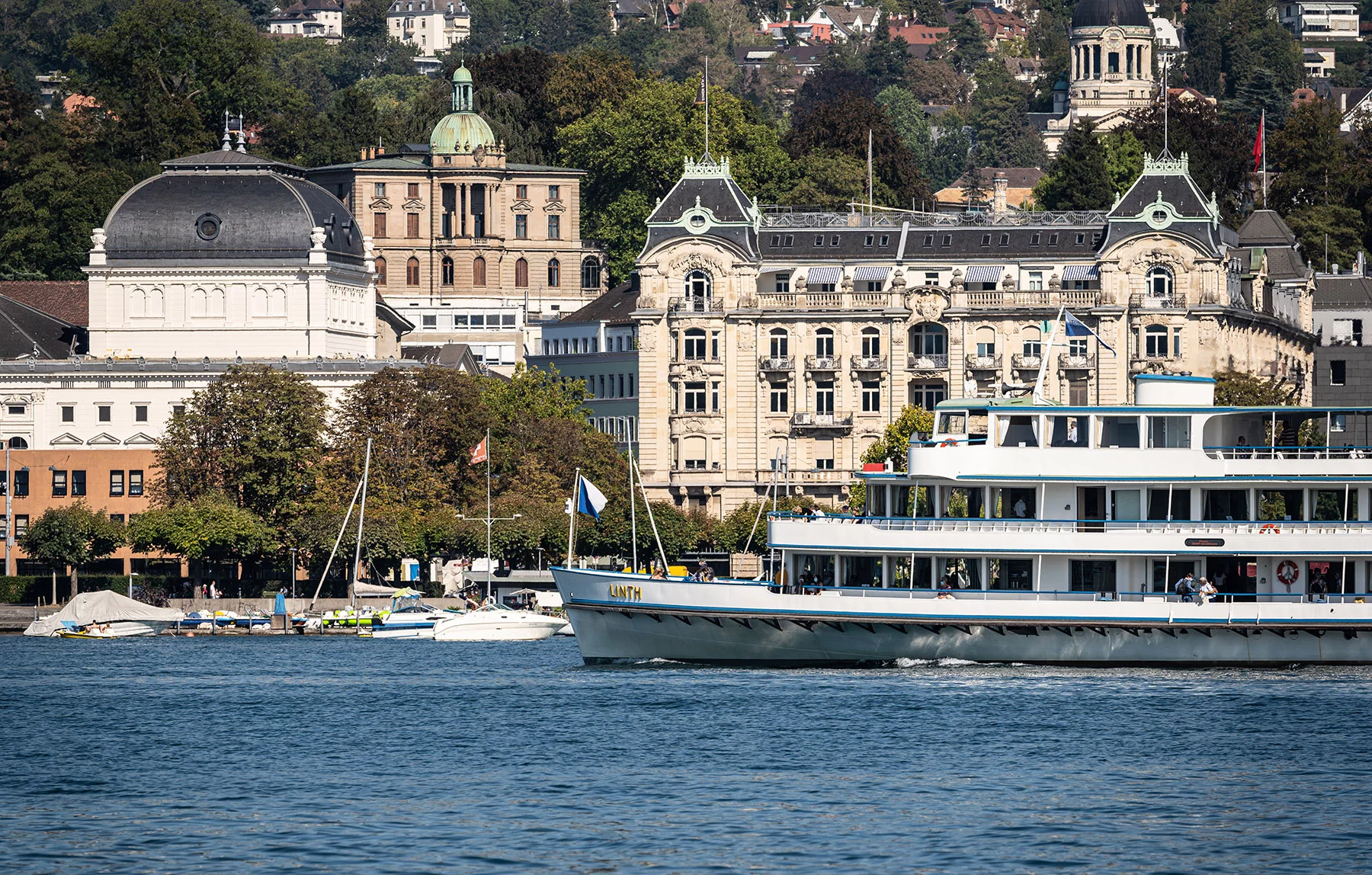
Lake Zurich: the Silver Coast
The Silver Coast, which lies on the western bank of Lake Zurich, is particularly popular among expats due to the abundance of international schools. You’ll also notice that the pubs and restaurants tend to cater to English-speaking residents. Popular locations on the Silver Coast include Kilchberg, Thalwil, Rüschlikon, and Horgen.
Environment of the Silver Coast
The Silver Coast encompasses a huge area with many towns, although they share many environmental similarities; namely incredible views of the lake and the Alps which dominate the surroundings.
Facilities around the Silver Coast
One of the best things about living on the Silver Coast is walking around and lapping up the fantastic views of the lake and Alps in the distance. Wandering from Zurich Bürkliplatz to Rote Fabrik in Wollishofen is particularly scenic, with an abundance of flowers in springtime, and long tree-lined promenades on show. If you’re looking to check out Lake Zurich by boat – which is undoubtedly the best way – then check out Bootsvermietung Zurichsee, which offers boat tours as well wakeboarding and windsurfing.
Since the Silver Coast is so big, we’ll do a quick roundup of good places to eat and drink in the popular towns along the banks. For high-end Swiss food, try Oberer Mönchhof in Kilchberg. For drinks along the banks (this will become a recurring theme), head to Mönchhof am See. Meanwhile, Etzliberg in Thalwil serves amazing schnitzel, fish, and steak. For drinks, there’s an amazing hidden gem by way of The Gin Garden.
If you’re in Rüschlikon, then da Toni is da way for amazing wood-fired pizzas (and lame jokes using ‘da’). For drinks, Hotel Belvoir is a lovely spot for a tipple. And if you love Thai food, make sure to check out ThaiMama in Horgen. Chrotte Bar is also a great spot for a beer.
Lake Zurich: the Gold Coast
The Gold Coast takes in the lower eastern shore (right bank) of Lake Zurich. It is generally more expensive than its silver sister, as a result of getting more sun throughout the year. If you’re determined to get a tan, then look for properties in Zollikon, Küsnacht, Erlenbach, and Meilen on the Gold Coast. Bear in mind, though, that if you want to live on Lake Zurich, you’ll likely be relying on a housing allowance. Either that, or you’ll need to compromise on space as it’s a competitive area.
If you’re happy to be in close proximity to the lake without having a great view of it, then there are some great options. Villages along the Gold Coast ridge enjoy the benefits of good schools and access to the city center, while still being close to Lake Zurich. Best of all, if you’re a savvy searcher, there are some much better property deals to be found. Sound good? Then direct your search to the Pfannenstiel region on the Gold Coast.
Environment of the Gold Coast
The Gold Coast is a beautifully gentrified part of Zurich. Of course, the lake is what makes the environment so unique. This is the beating heart of the Gold Coast and makes any town you choose around it a dynamic, exciting, and inherently high-end place to live.
Facilities around the Gold Coast
Much like the opposite bank, walking along the Gold Coast is a real treat. There is nothing better than going from Zurich Burkliplatz to Tiefenbrunne on a Sunday afternoon for people watching and exploring the China Garden and the fun stepping stones hidden behind the trees.
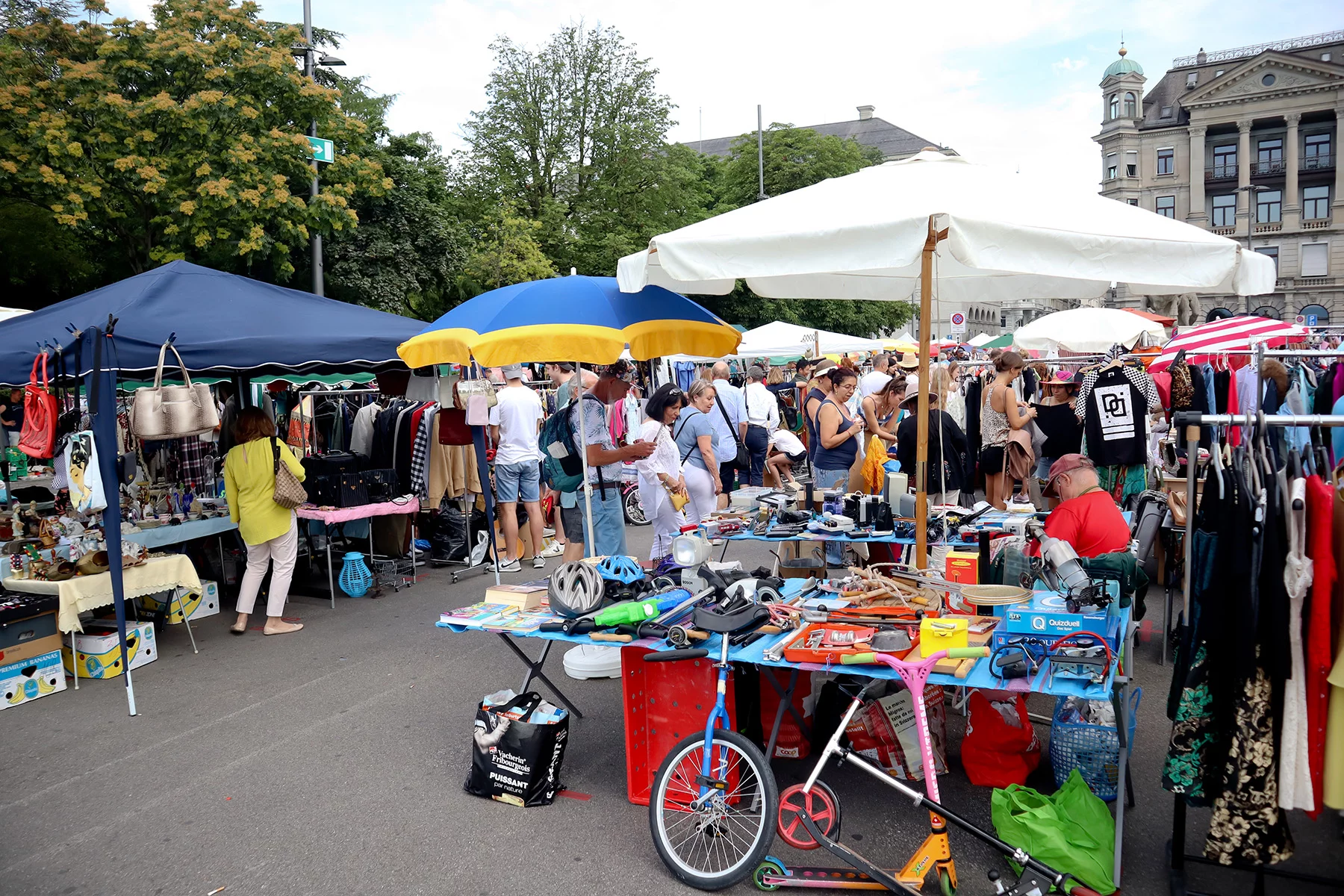
Just like the Silver Coast, there are countless great places to eat and drink. These are scattered across the four choice towns along the Coast. In Zollikon, head to Trube for some of the best Swiss fare going. Drinx Bar lives up to its truly terrible name by having a great selection of whiskies.
Meanwhile, Restaurant RICO’S in Küsnacht offers up wildly popular, sophisticated eats that are considered among the best in Zurich (backed up with its two Michelin Stars). For drinks, Sonne am See is the perfect beer garden for summer. And Fischstübli in Erlenbach is ideal for cozy dining by the lake (with amazing raclette). For drinks, See-Bar Küsnacht on the banks of Lake Zurich can’t be beaten. Lycka Coffee Bar in Meilen also happens to have amazing eats and is generally one of the best hang-out spots in Meilen. And Löwen Meilen is the after-work beer spot of your dreams.
Transport to Lake Zurich Silver and Gold Coasts
This one is a little tricky to answer as the Coasts run a long way, taking in a lot of towns. Basically, if you’re at the north end of the Silver Coast, then you can expect it to take around 10 minutes to get to Zurich HB Main Station. However, this can climb to up to an hour, depending on where you hop on.
Housing and accommodations on the Silver and Gold Coasts
As the Coast covers such a vast area, the price range will be large, but always towards the pricier end of the scale. The closer you are to Zurich city center – Kilchberg in the Silver Coast or Zollikon on the Gold Coast – the more expensive it will be. It is certainly pricier than down in the southern areas like Erlenbach.
Work and business on the Coasts
Being so tightly squeezed along a long vertical stretch, both coasts are mainly made up of residential areas and businesses that largely cater to the locals. Business and trade largely center on catering to the sizeable residential population and tourists that flock to the Coasts in summer. As such, hospitality might be your best bet if you’re looking to kick-start your working life here.
What the Silver and Gold Coasts are best for
Although the Silver and Gold Coasts cover a large area, no matter where you end up, you can generally presume that there will be a thriving expat community as they are incredibly popular neighborhoods for out-of-towners to settle. Whether you live on Silver or Gold, the other thing it’s great for is boasting about having the best views in Zurich. High five!
Other areas to live in Zurich
There is an incredible range of beautiful areas to live in within the canton of Zurich, many of which offer benefits that you won’t get in the ZMA. Beware, however, that many of these areas, such as the Zürcher Oberland and the Weinland, are mainly Swiss-German speaking. If you already speak the language, though, or are looking for a fully-integrated experience, then you’ll get to experience some stunning vistas.
If you’re looking for somewhere that is outside the ZMA, but still fairly intuitive to an English speaker, then there are options. Zürcher Unterland is an area around the airport that has seen a burgeoning expat community flourish in recent years. Again, the main benefit here is finding more reasonable housing costs while still being within commuting distance of the city.
If Kreis 5 leans too much into hipster territory for you, but you’re still a young, hip, happening expat, then Oberstrass, found near the university, is a good option. One of its main benefits is that it’s far enough away from the center to make it more affordable while maintaining good transport links.
If you’re willing to commute to the city, then there is another lake in the canton of Zurich by the name of Greifensee. While it’s not as handy as Lake Zurich, it is set among a nature reserve with resplendent, verdant green surroundings. There’s a solid expat community in some of the larger towns around the lake, too, such as Uster and Volketswil. With great international schools and reasonable housing prices, this can be a very attractive option.
Neighborhoods to avoid in Zurich
Like most of Switzerland, Zurich is incredibly safe. In fact, any barrier of entry isn’t crime-related but purely cultural. That’s not to say that any area of Zurich is hostile to expats – quite the opposite. However, a few cantons (such as Zürcher Oberland, Weinland, and other areas on the periphery of the city proper) are largely Swiss-German speaking. These are great for immersing yourself in the Swiss experience but might make integration a bit harder if you don’t speak the language.
On the off-chance that you do run into trouble, though, you can head to the Kantonspolizei Zürich website, which can help you out. It’s also wise to keep a list of emergency numbers handy in case you need assistance.
